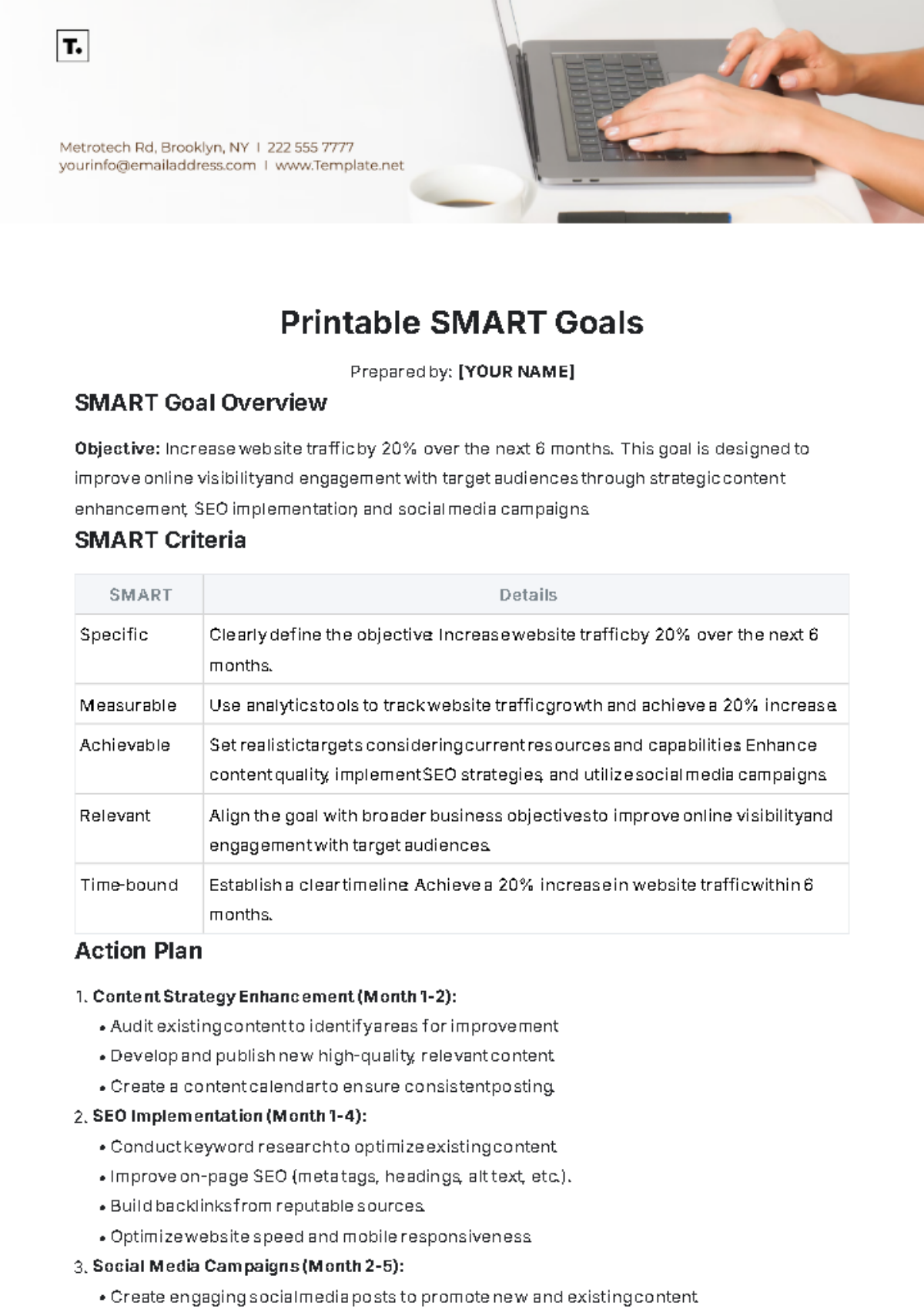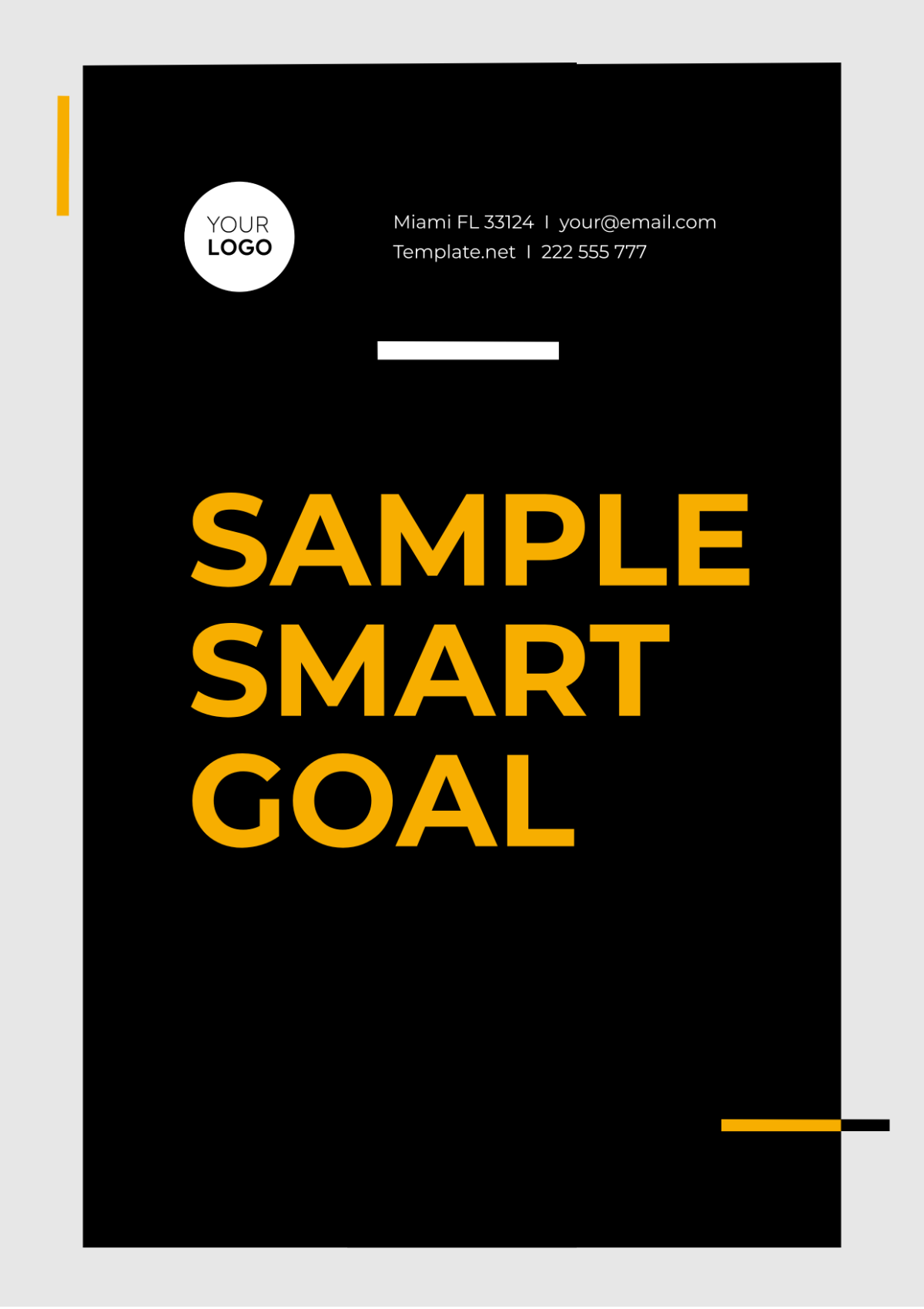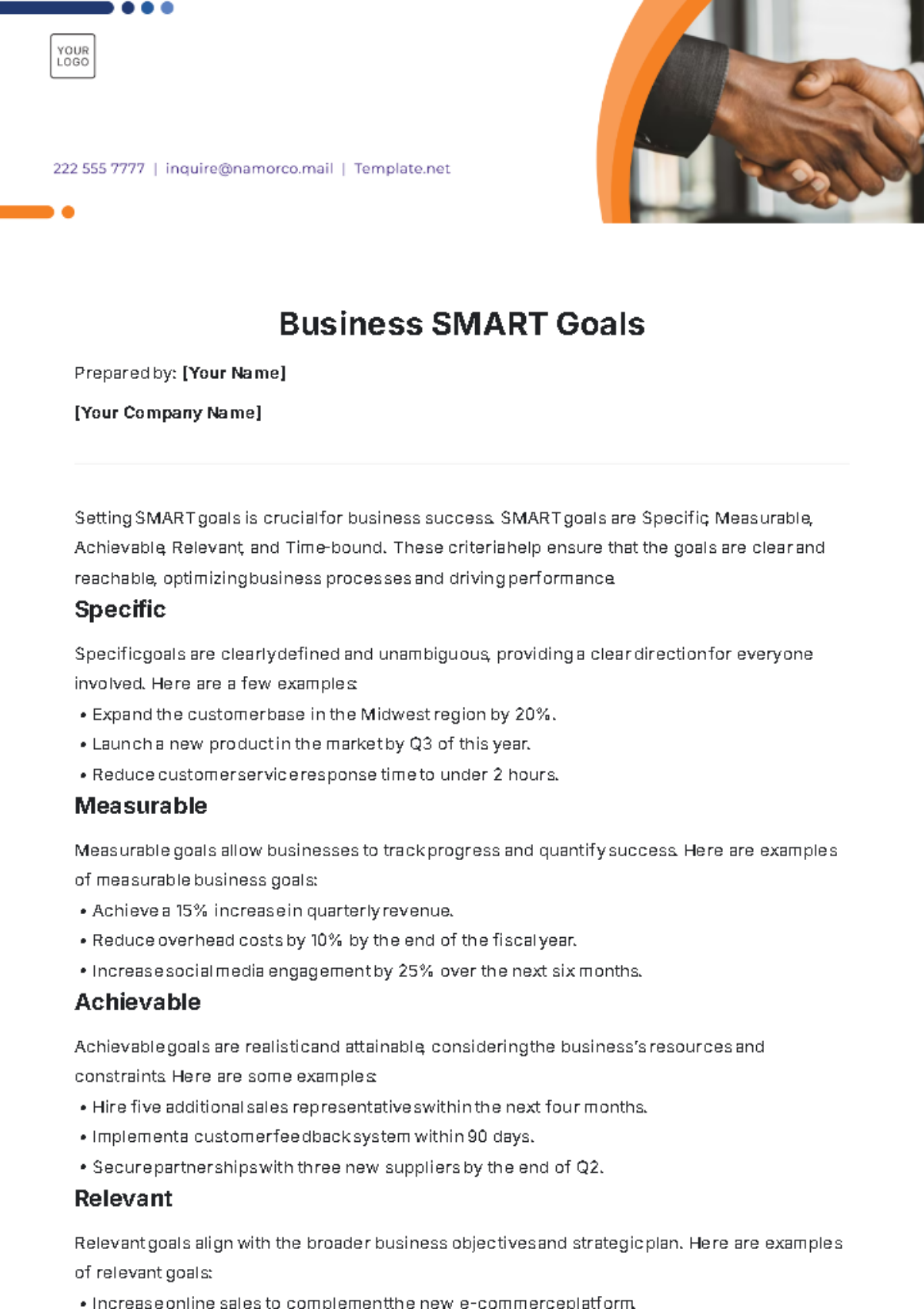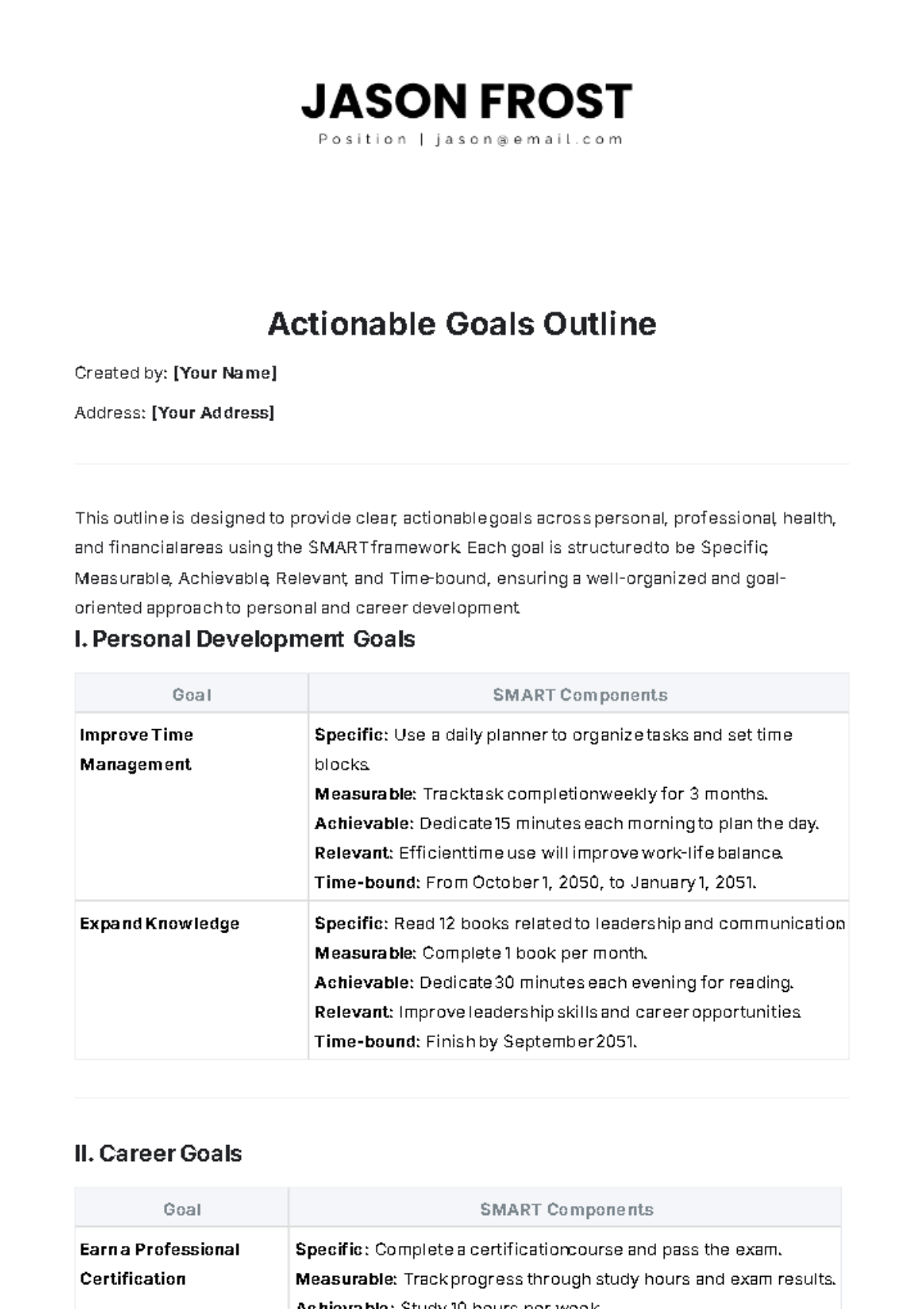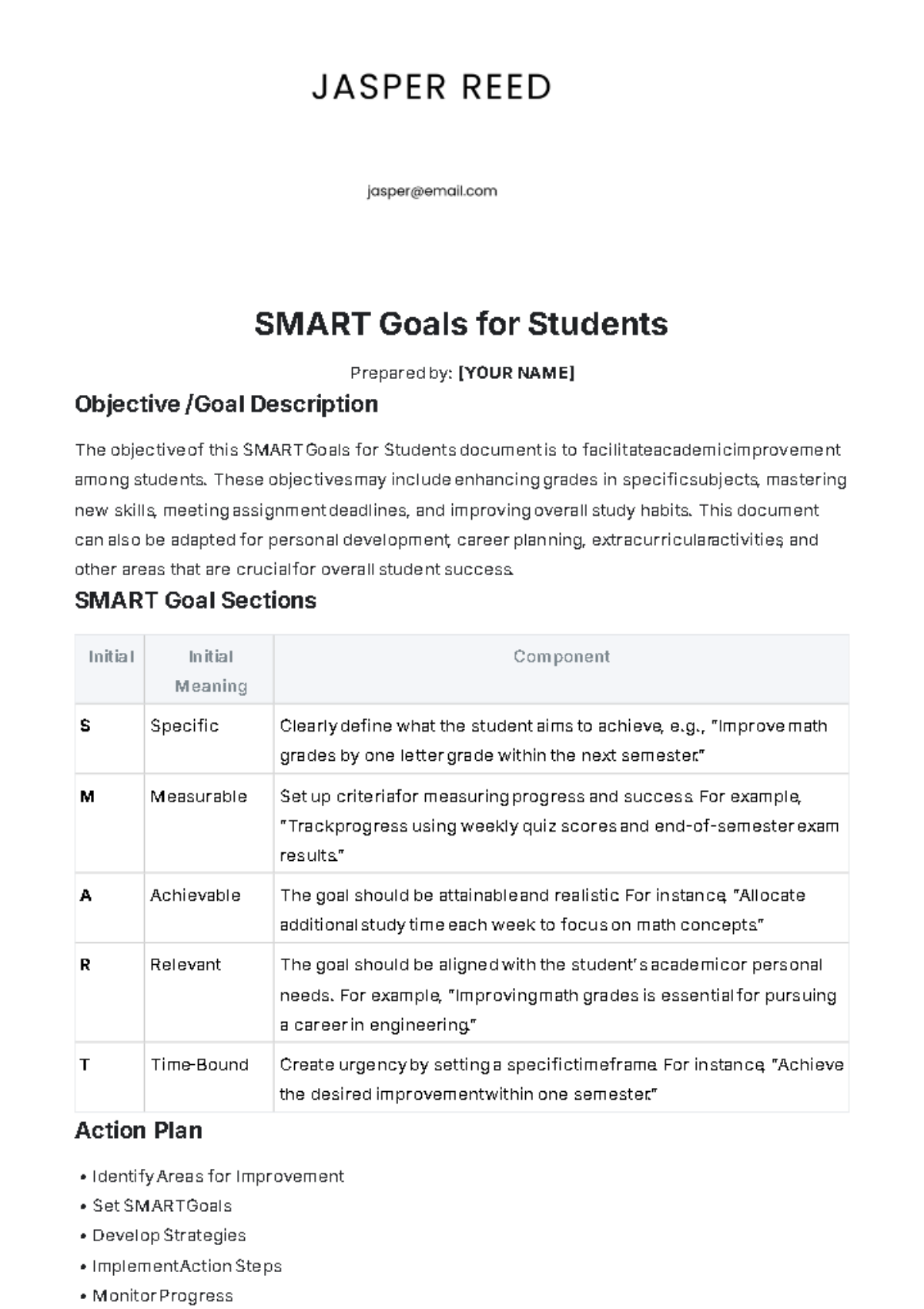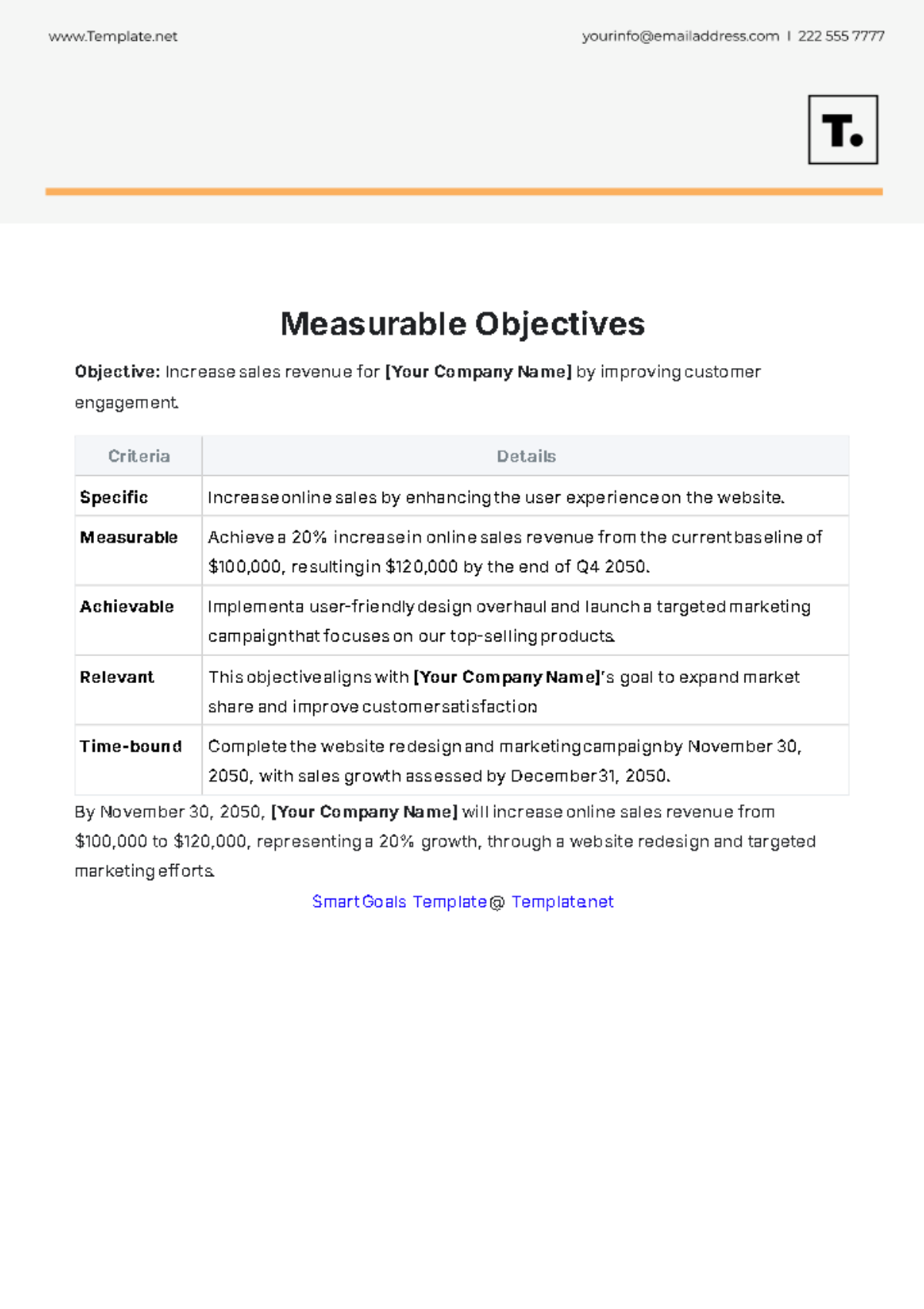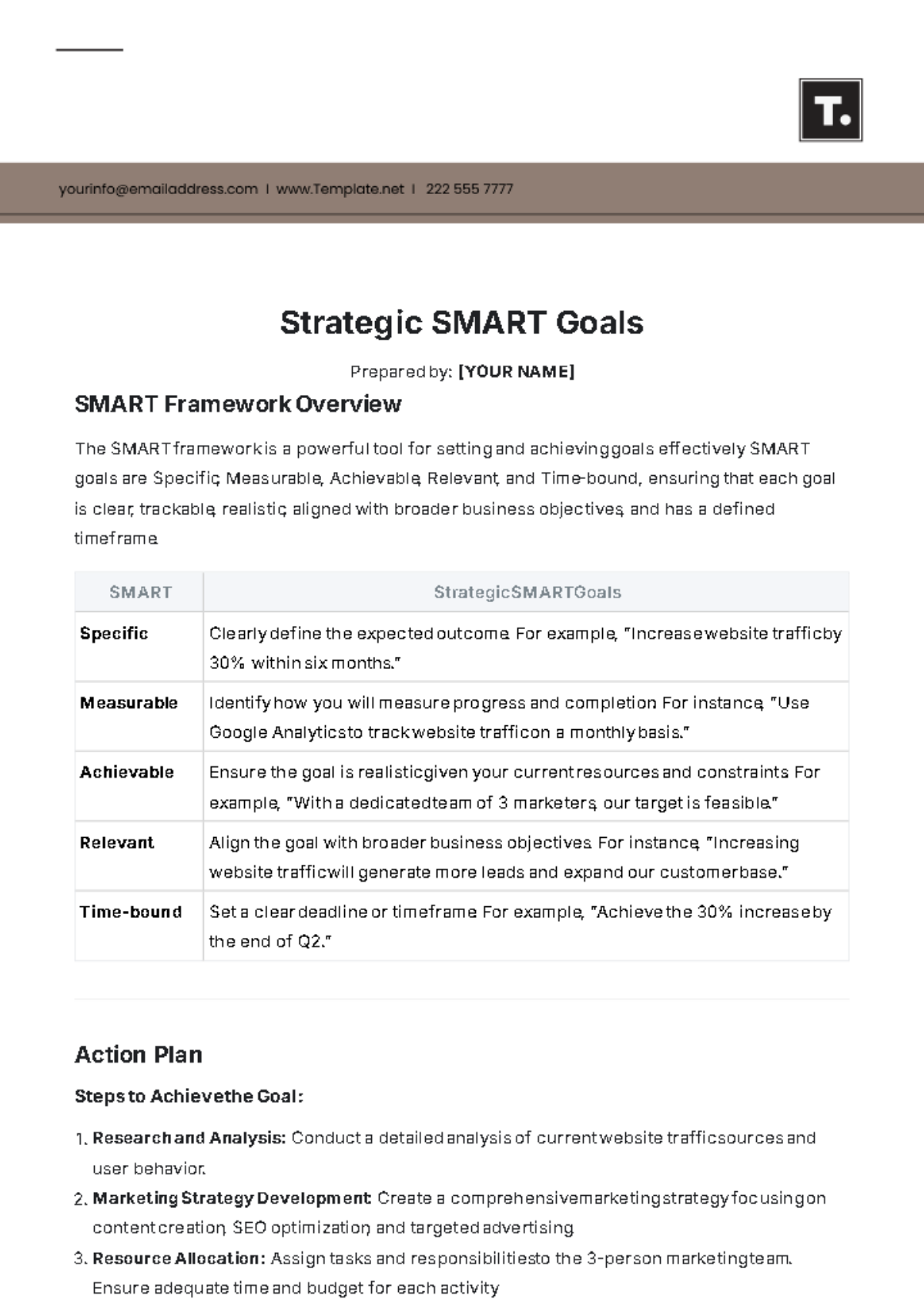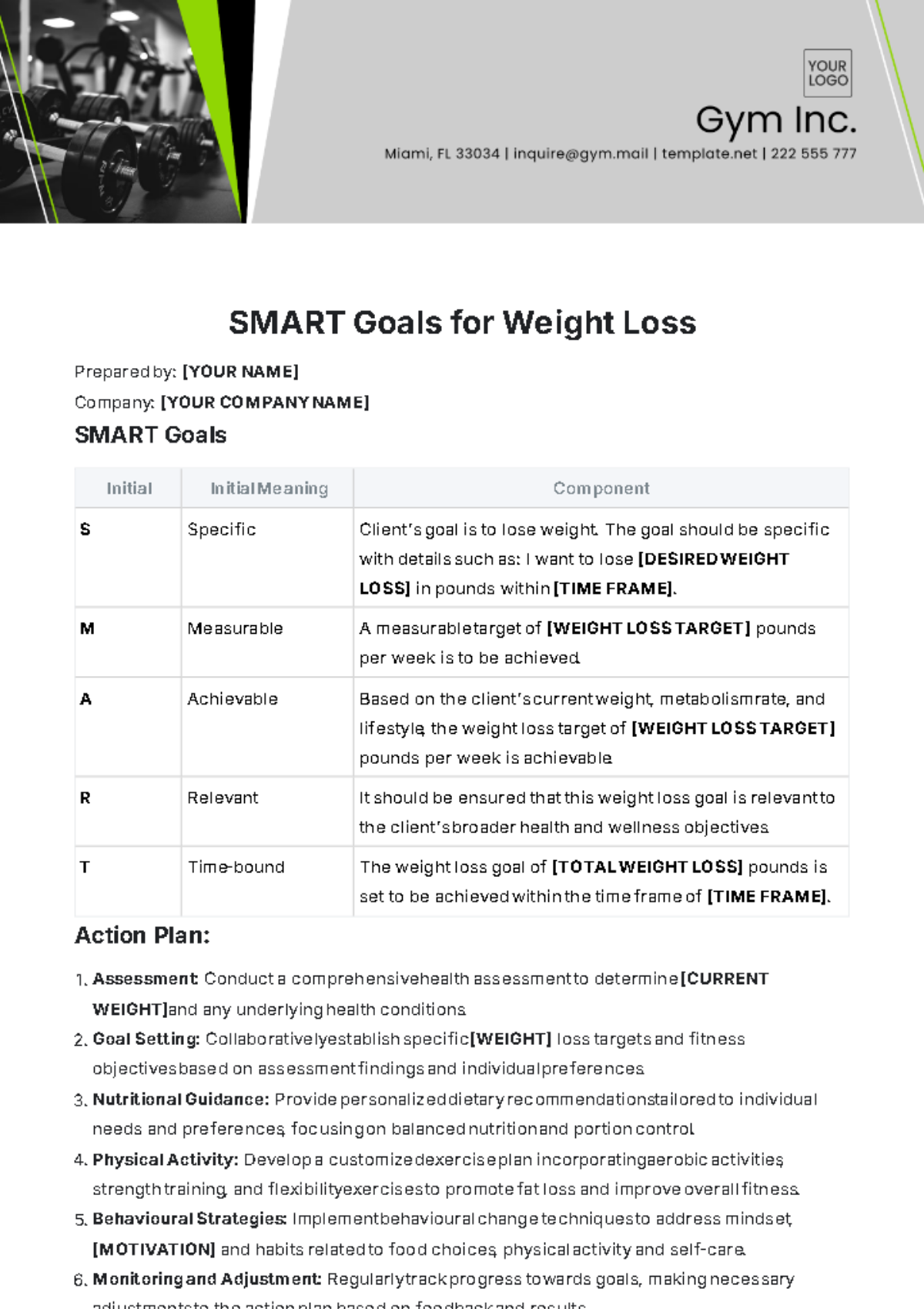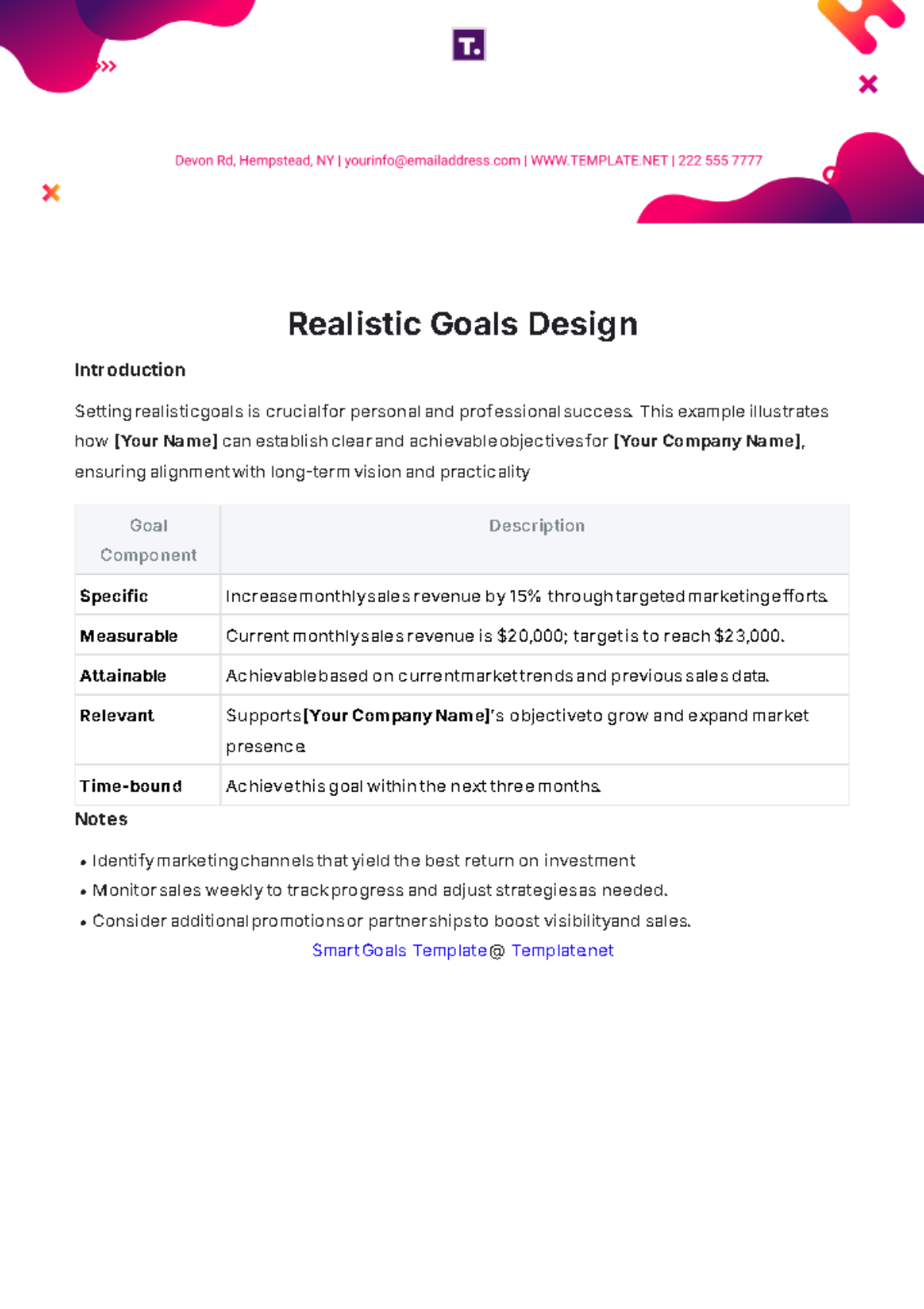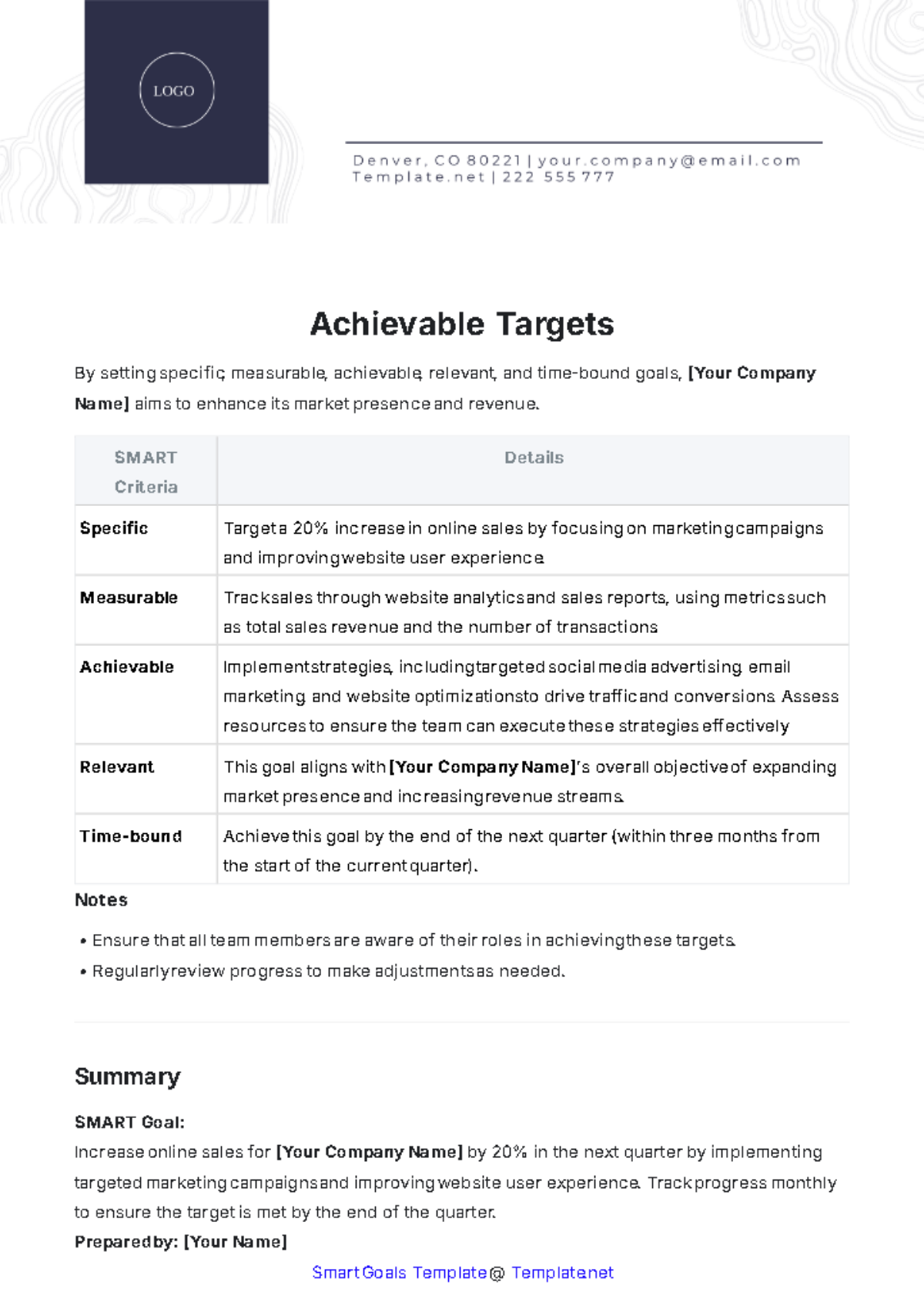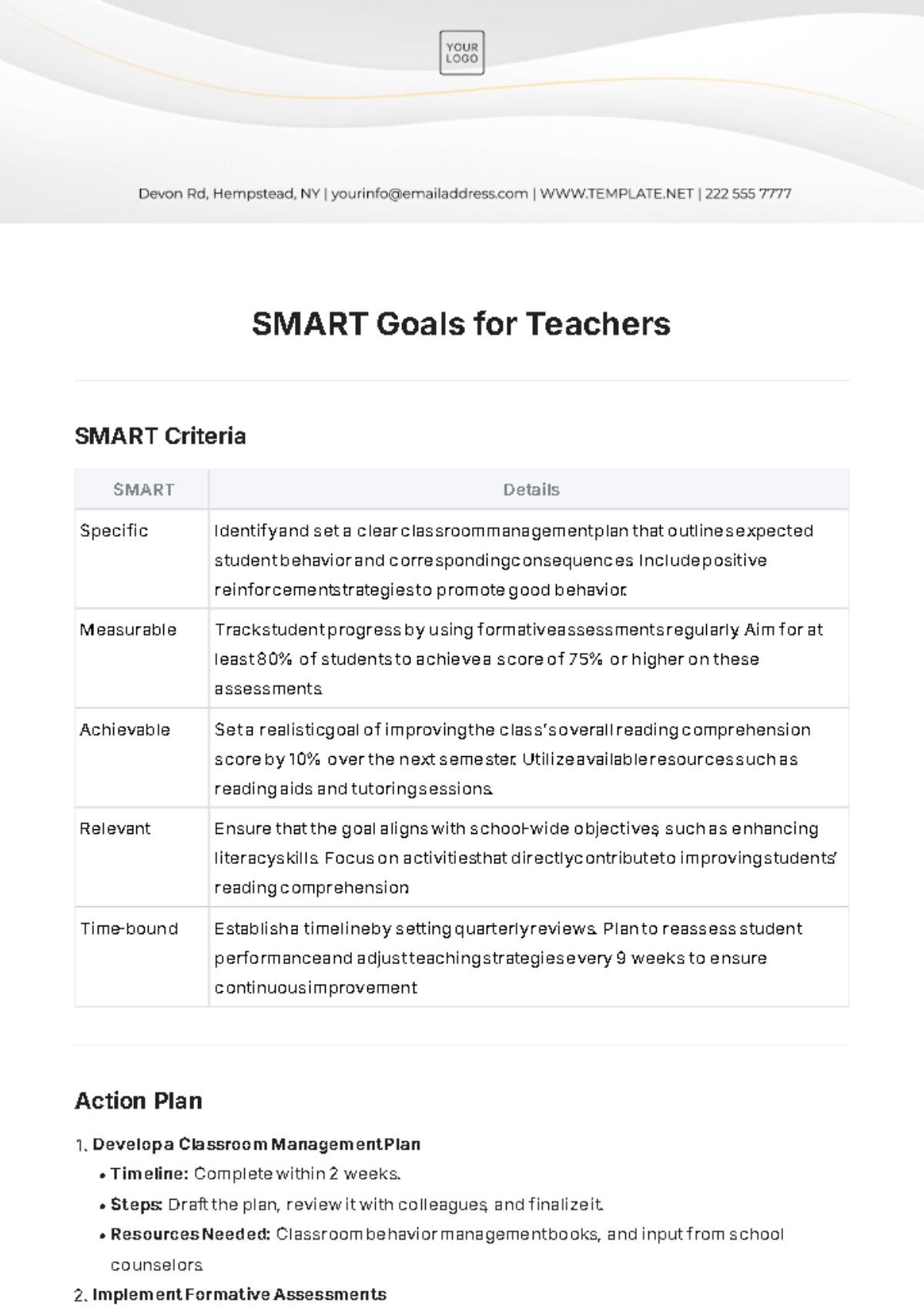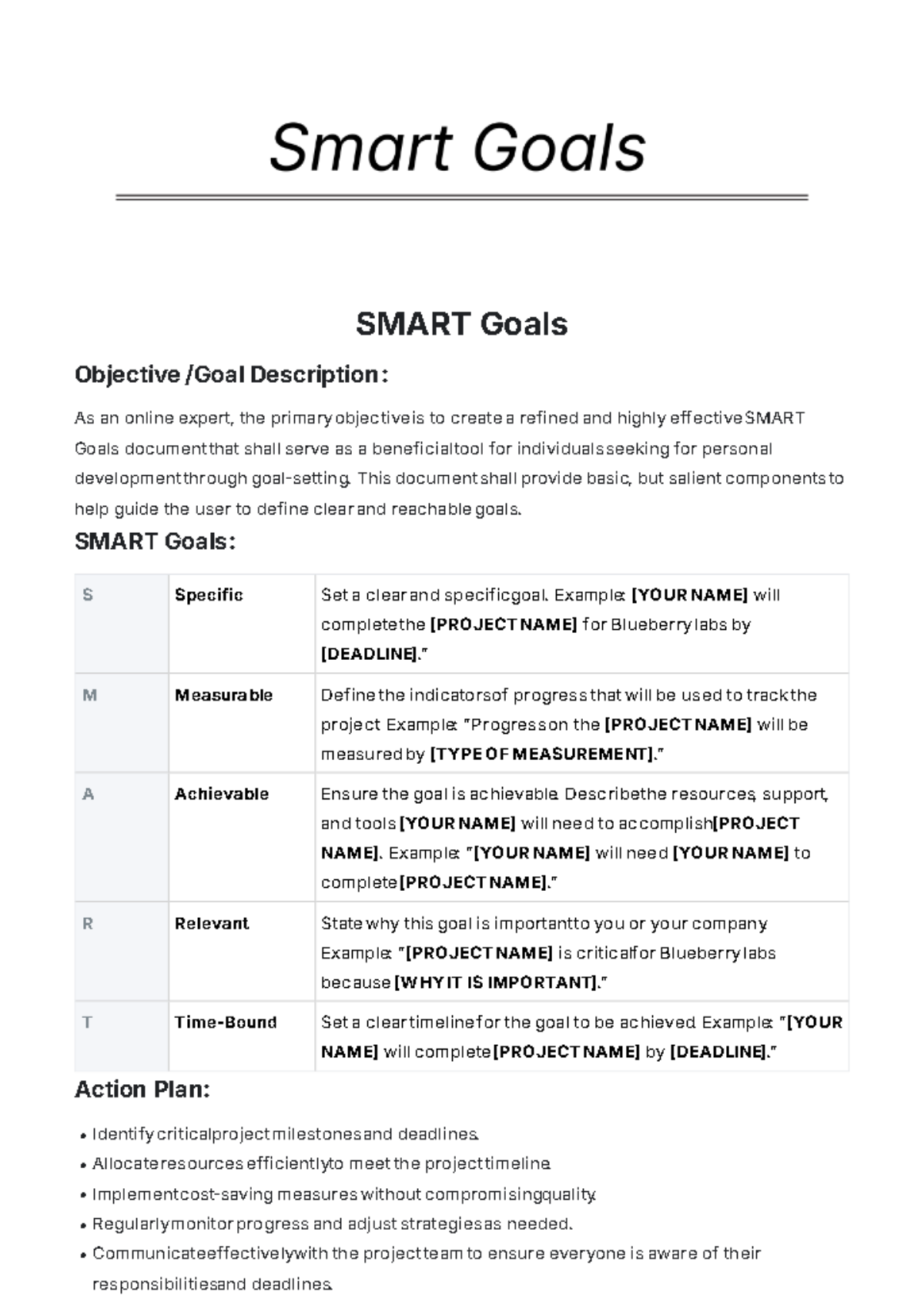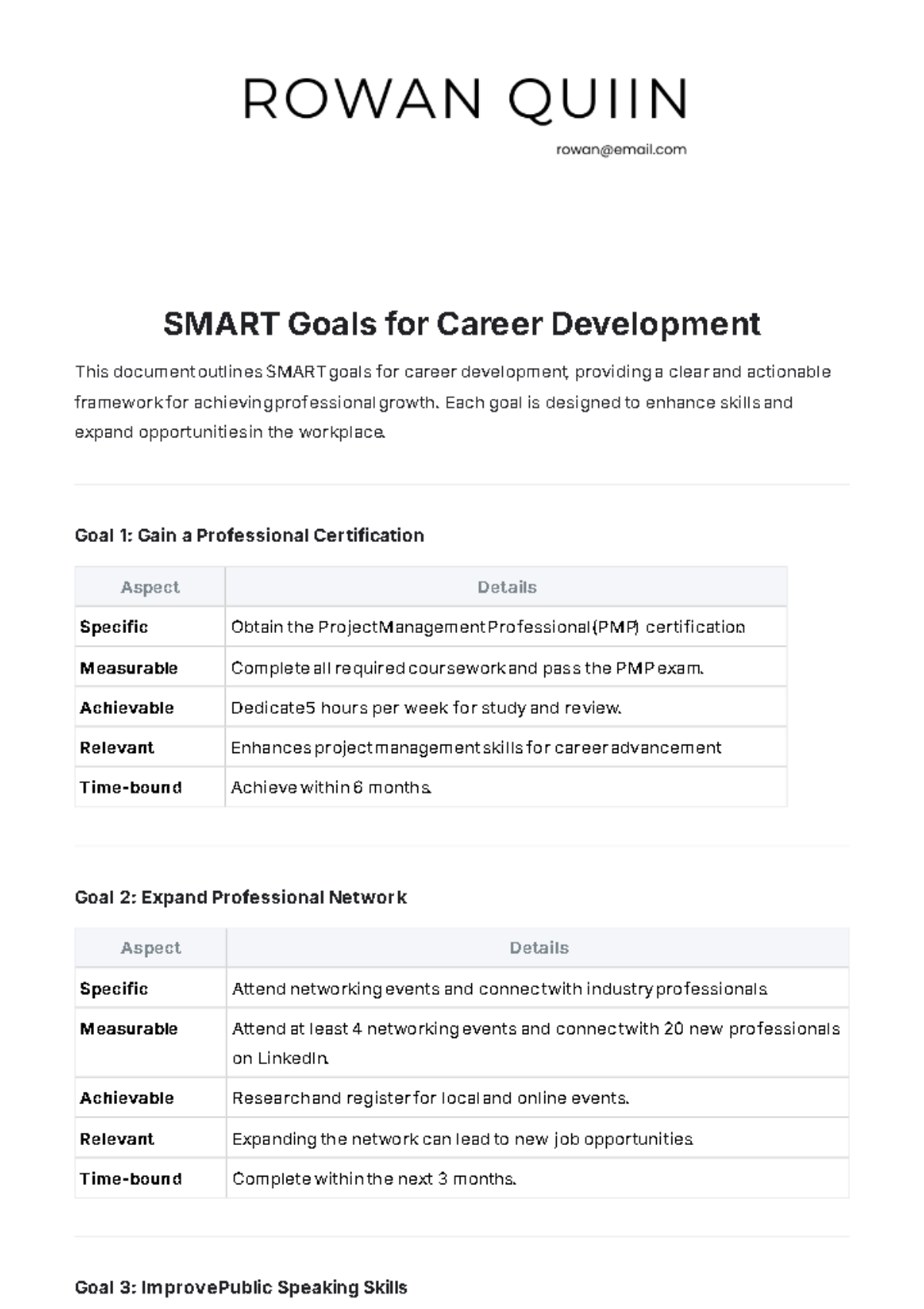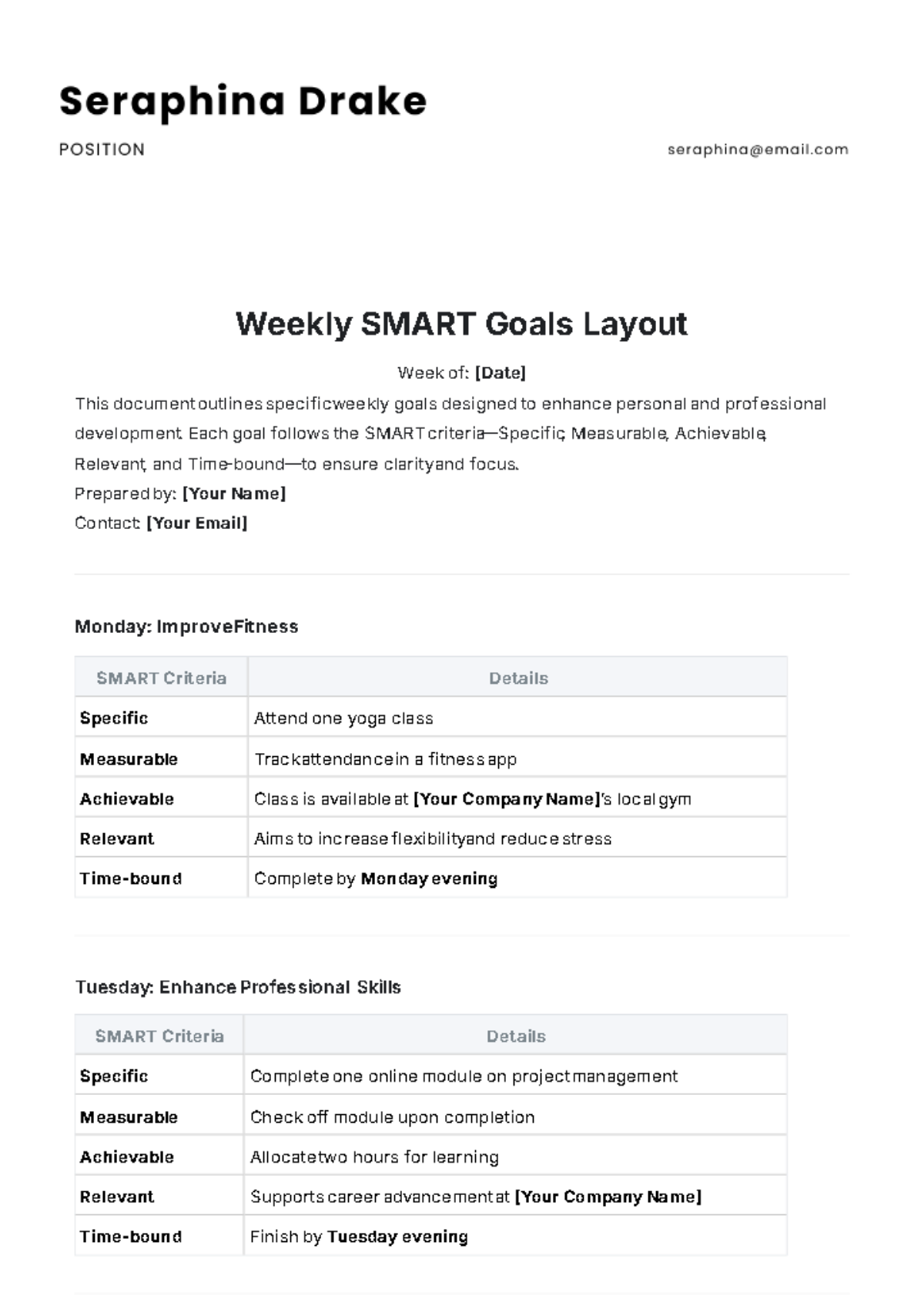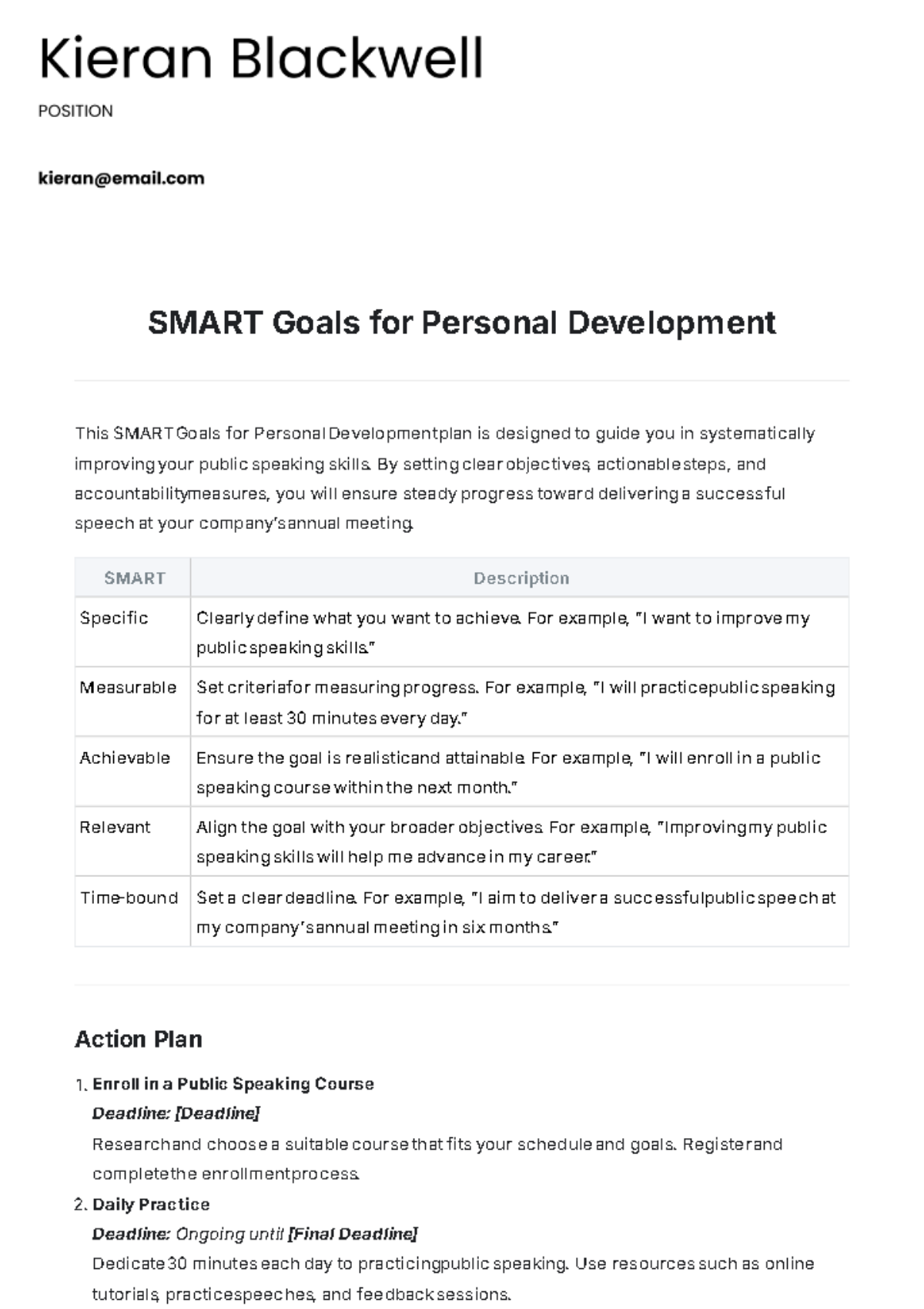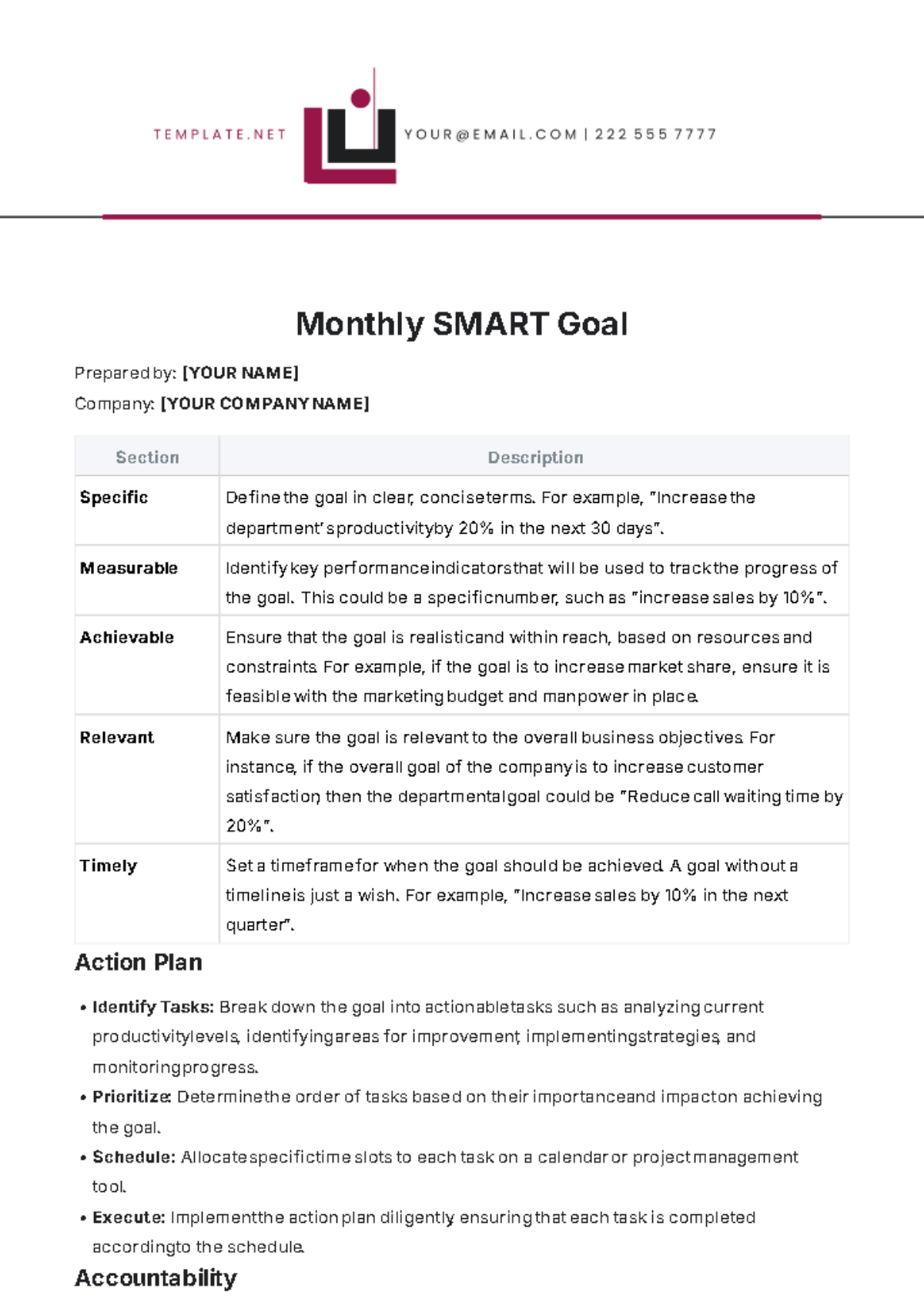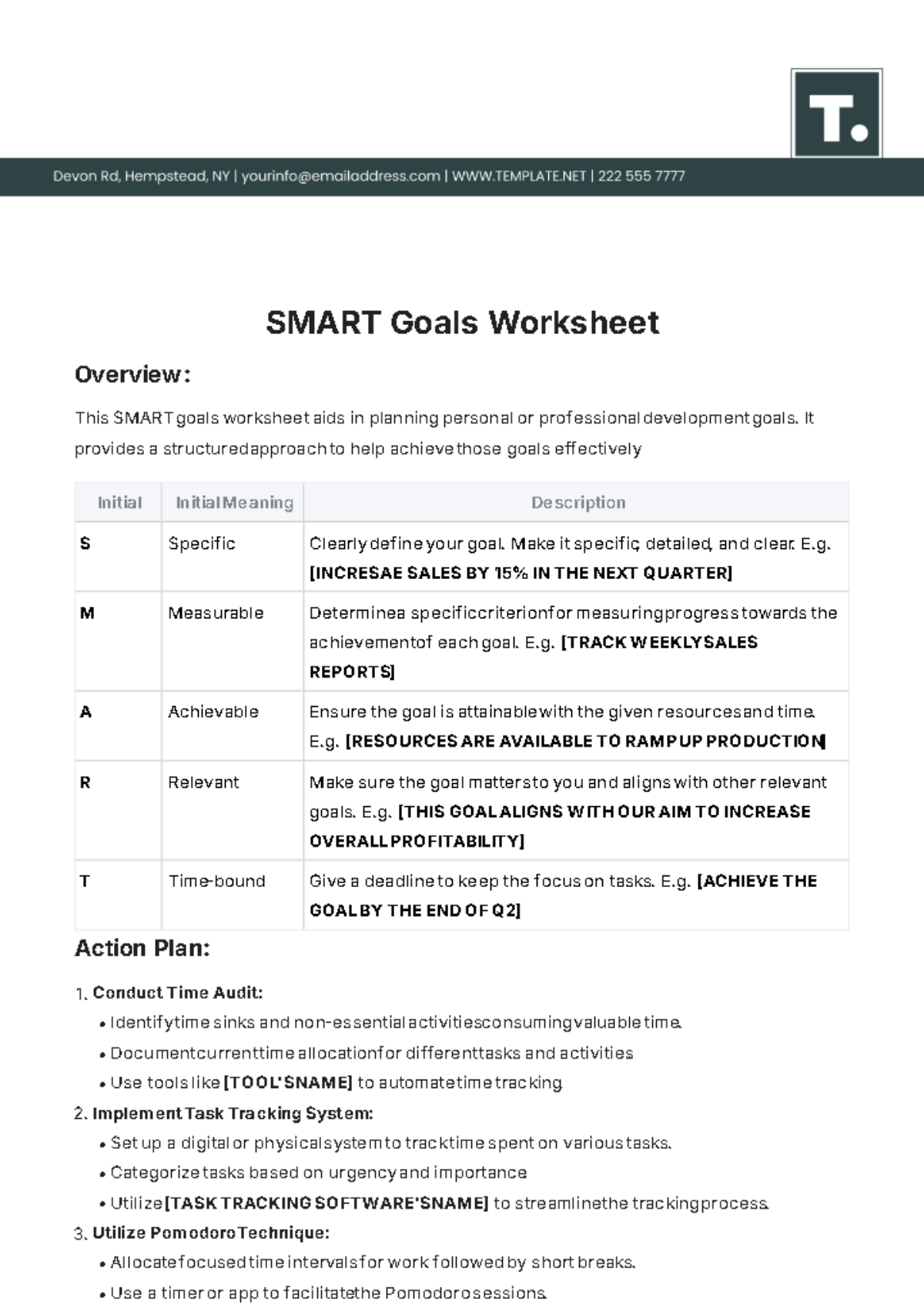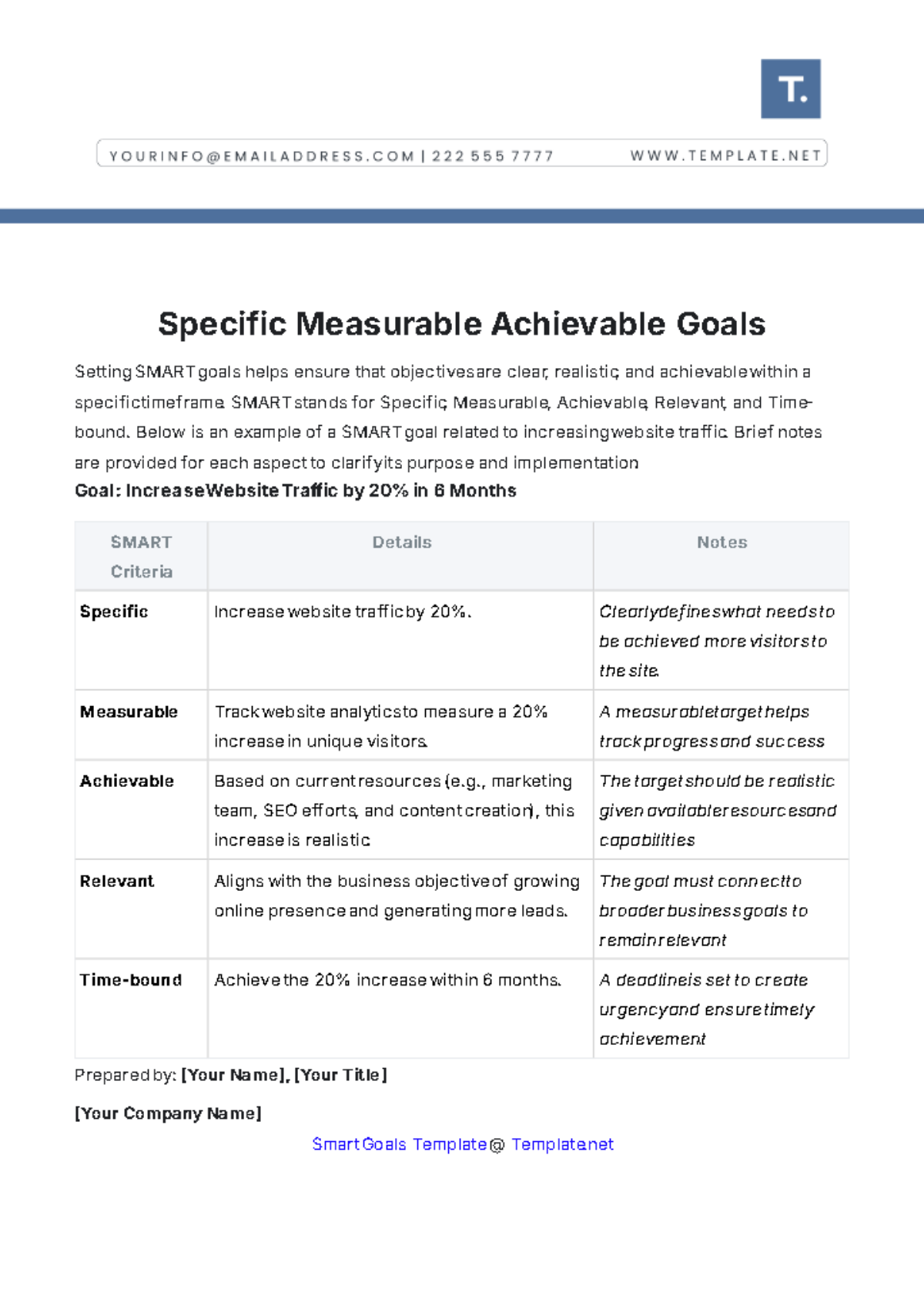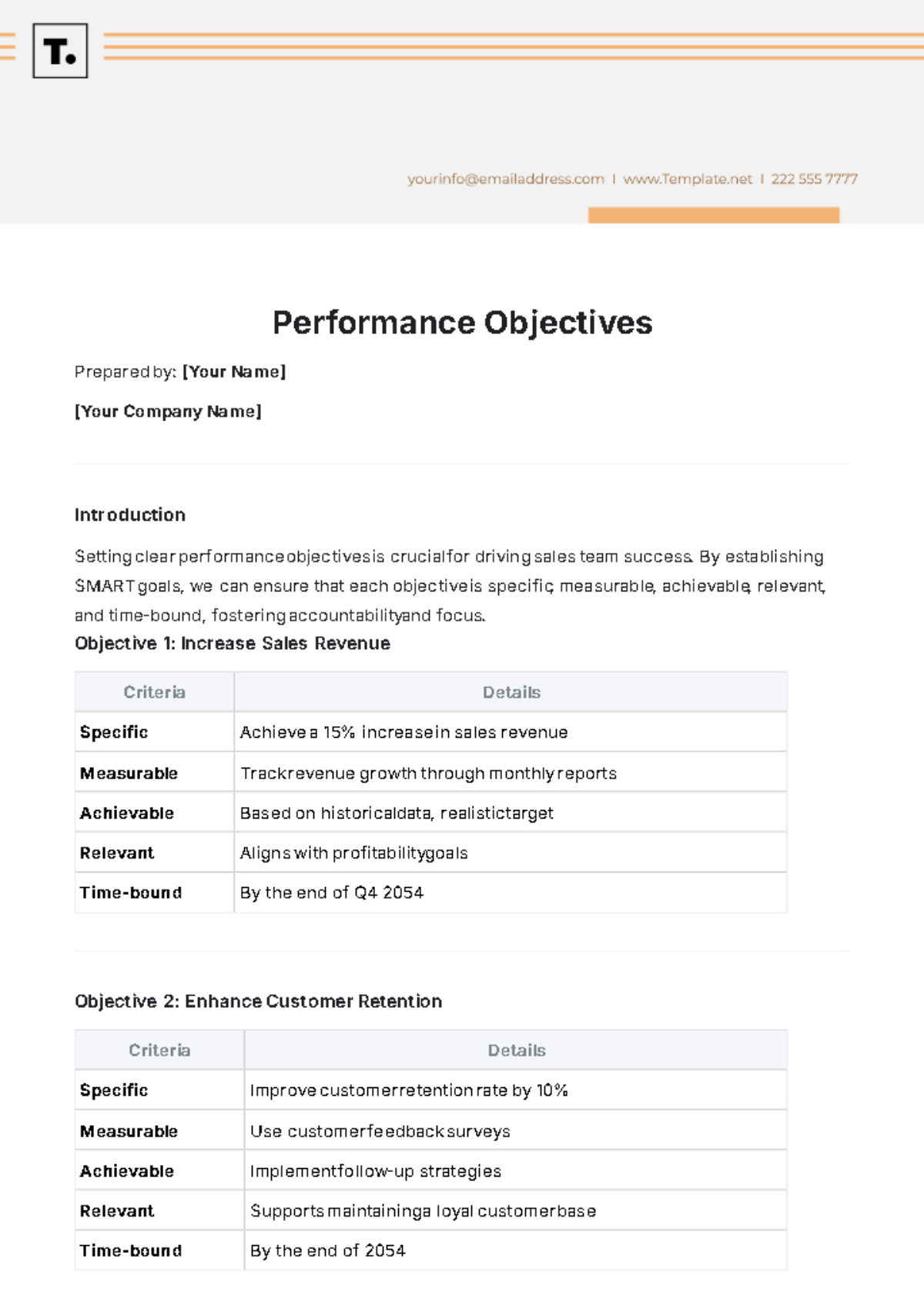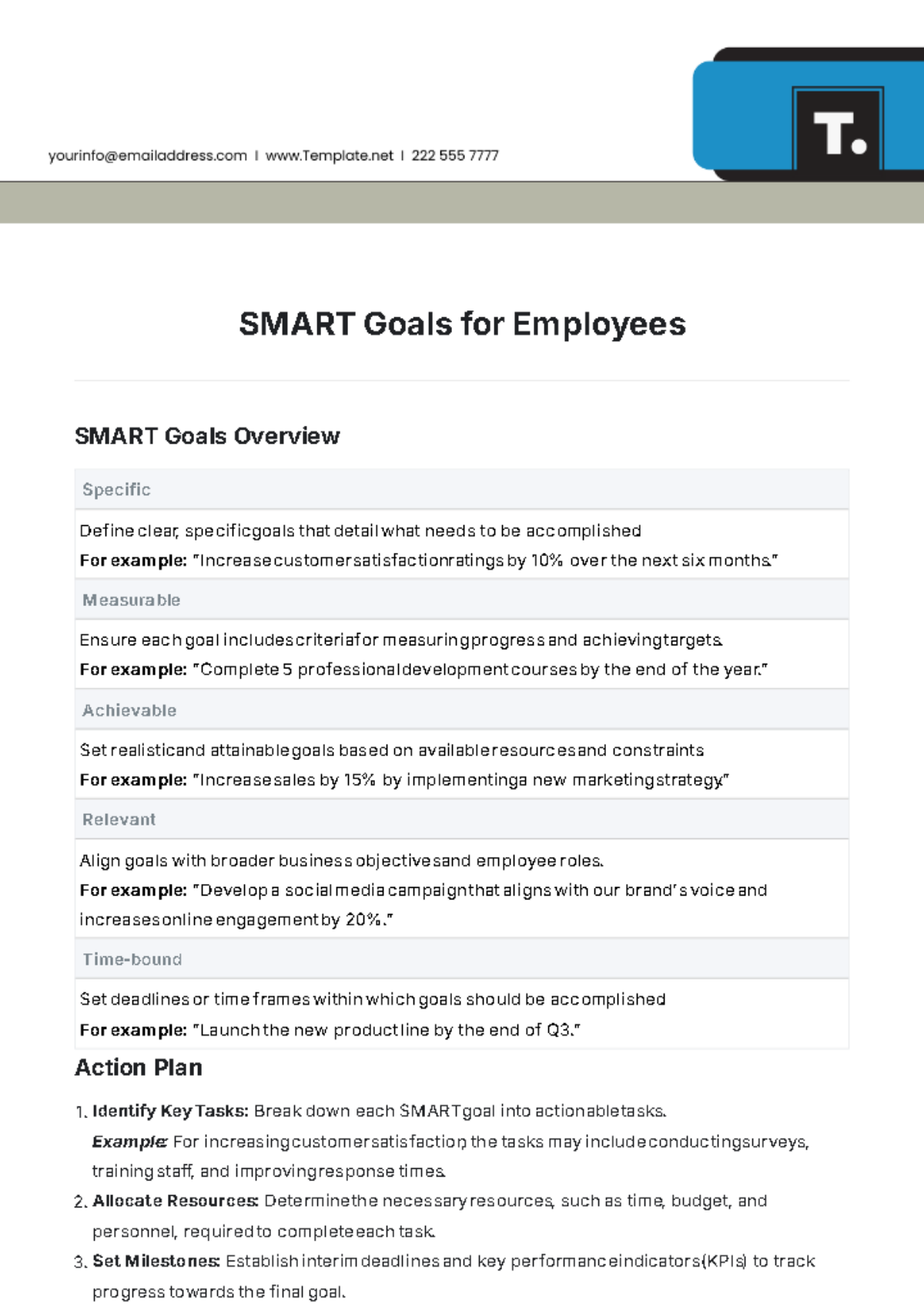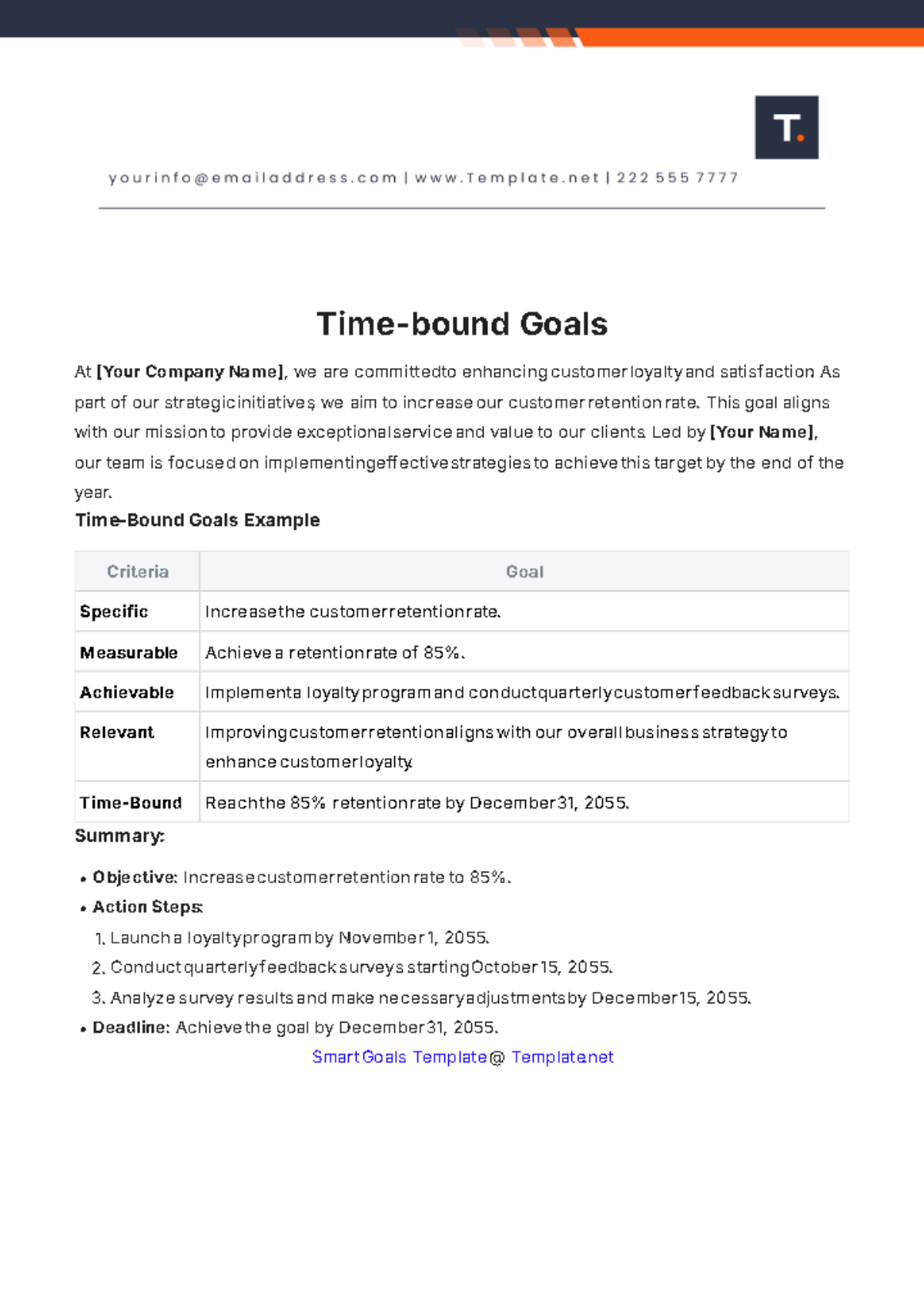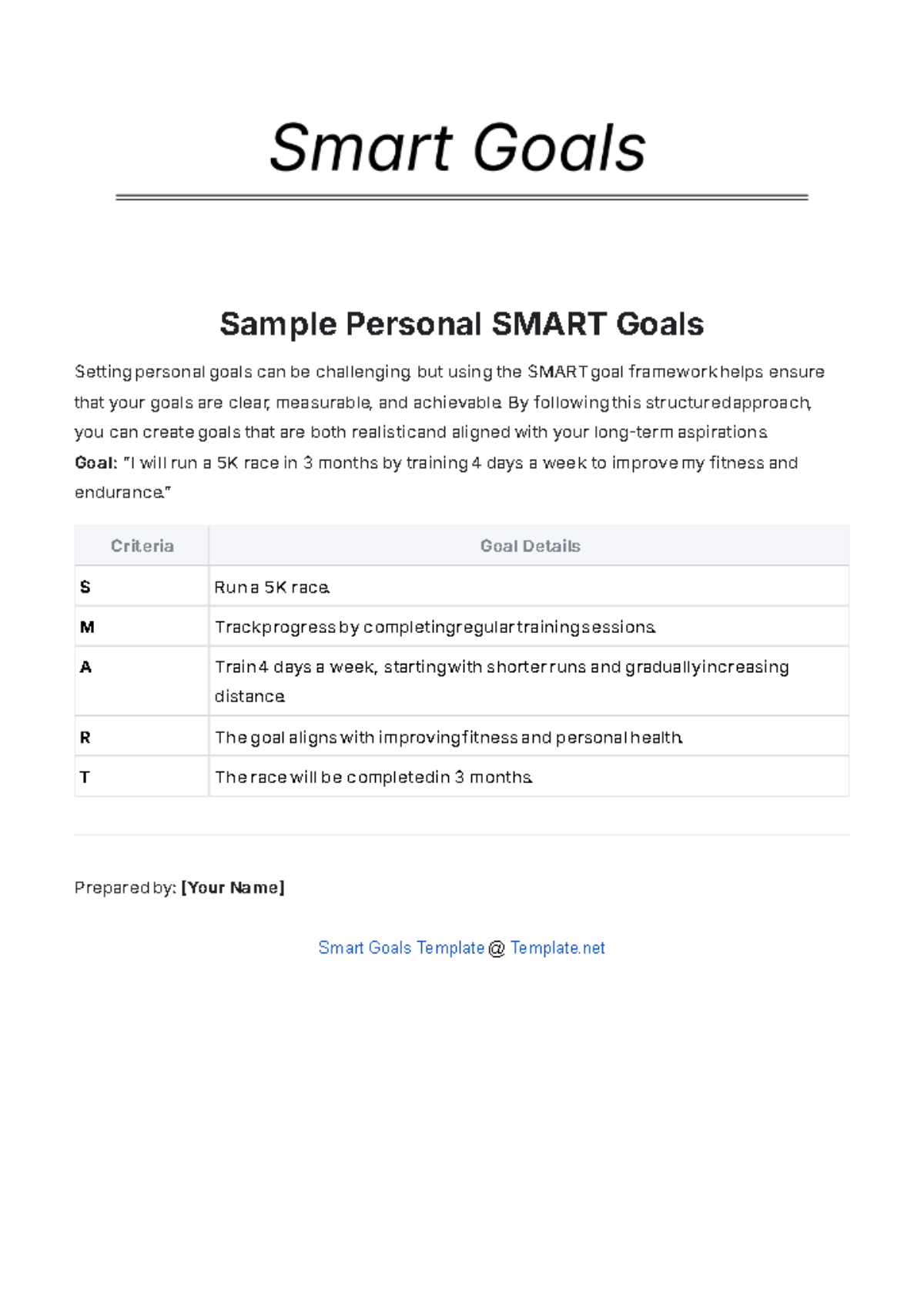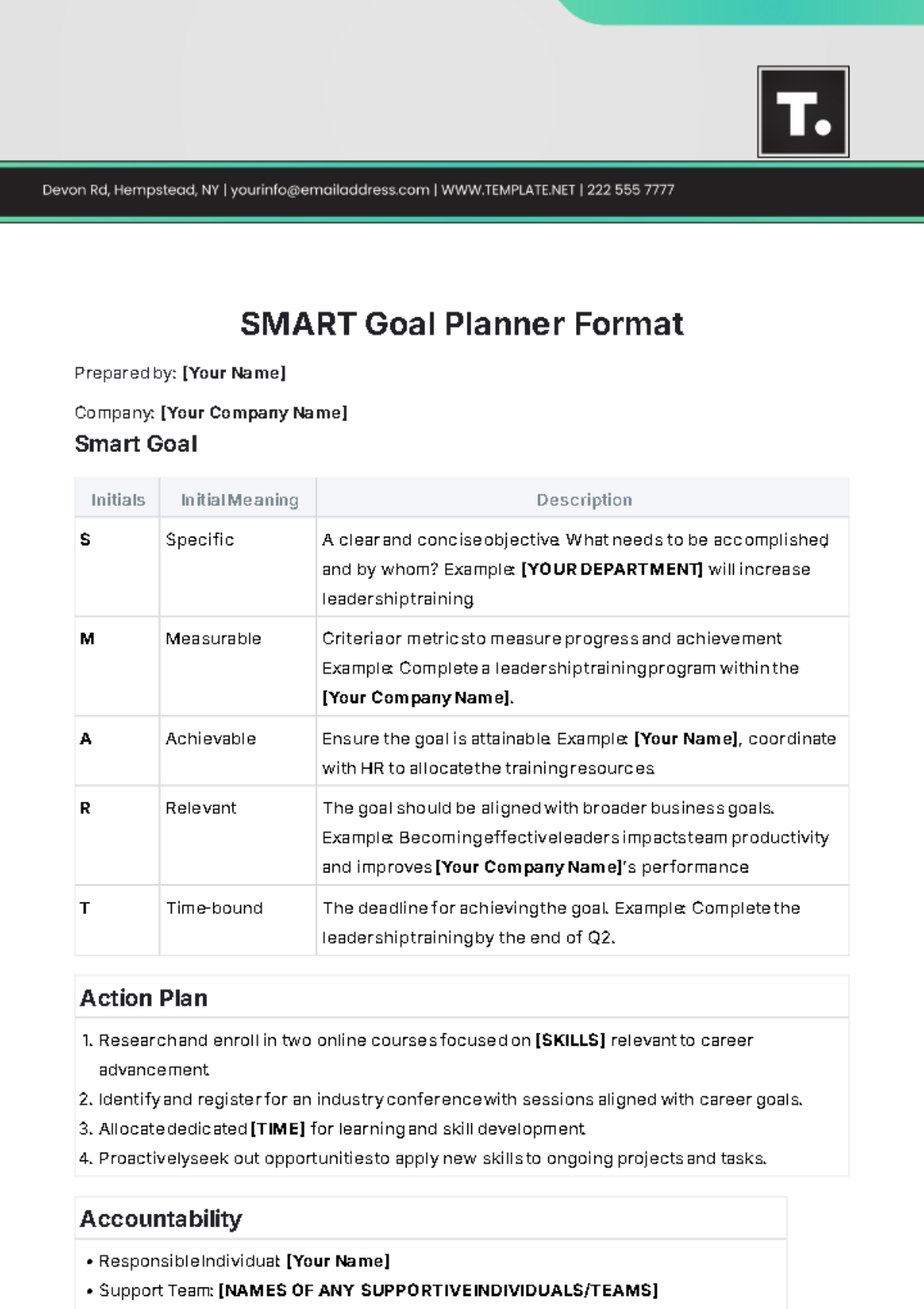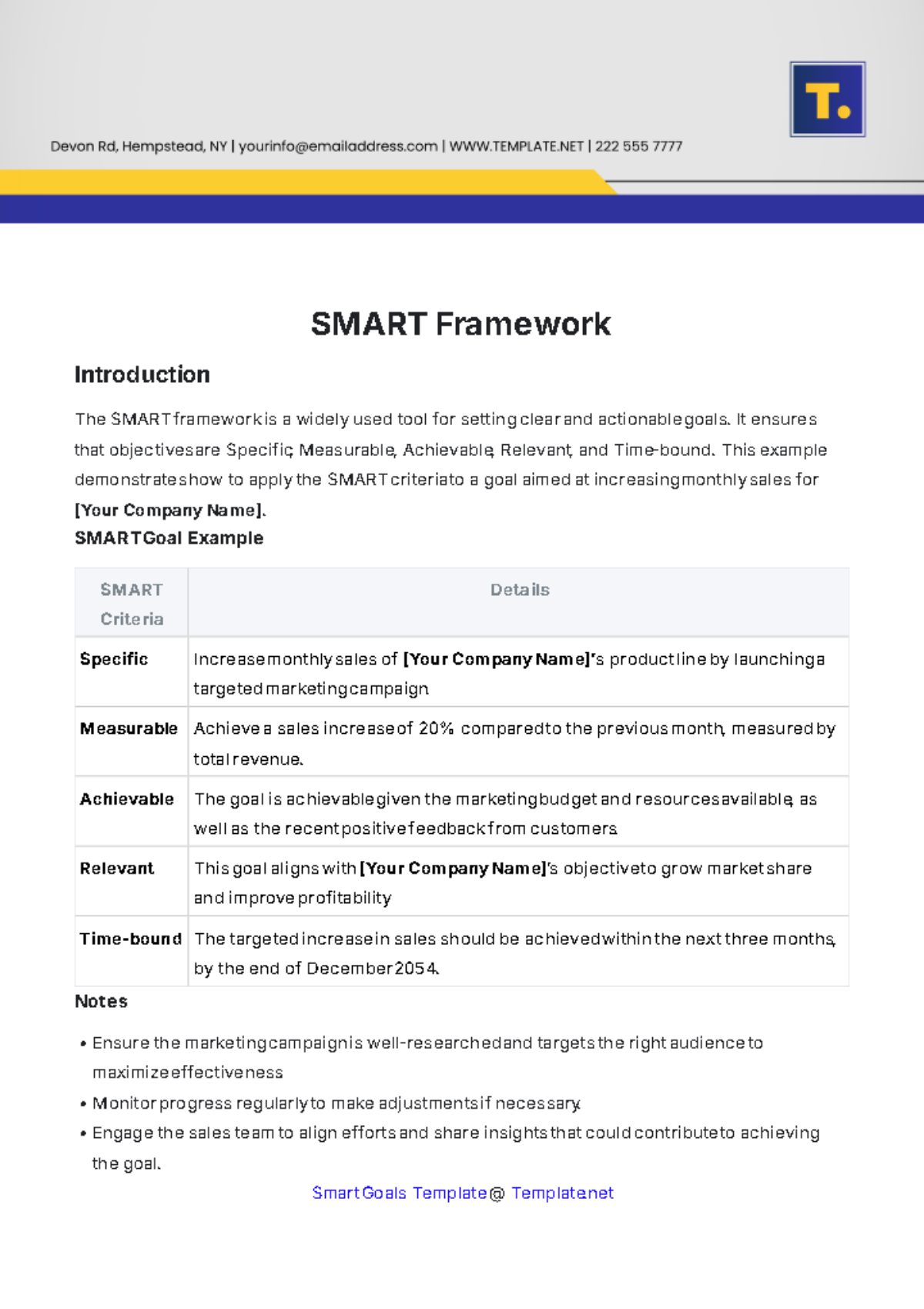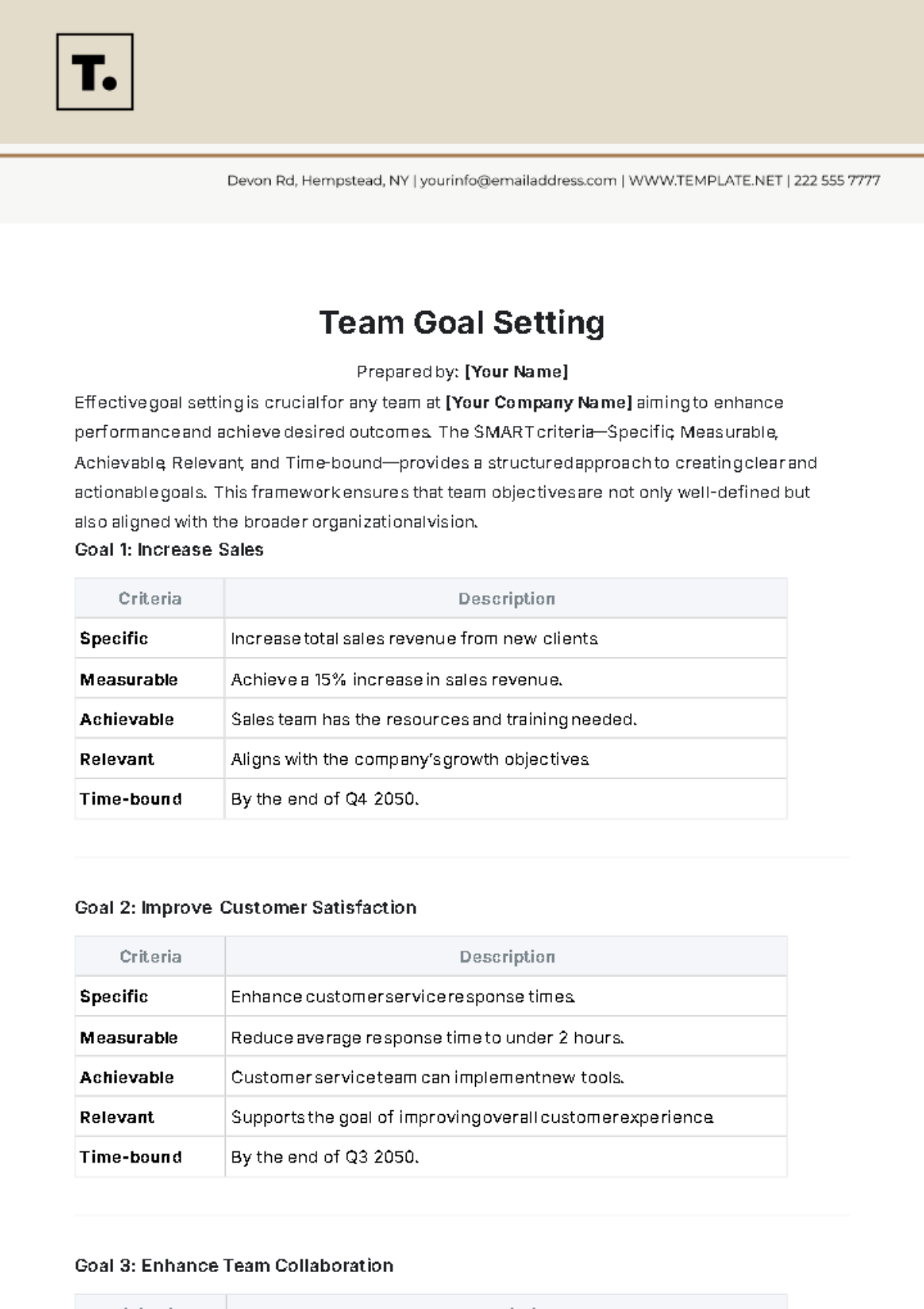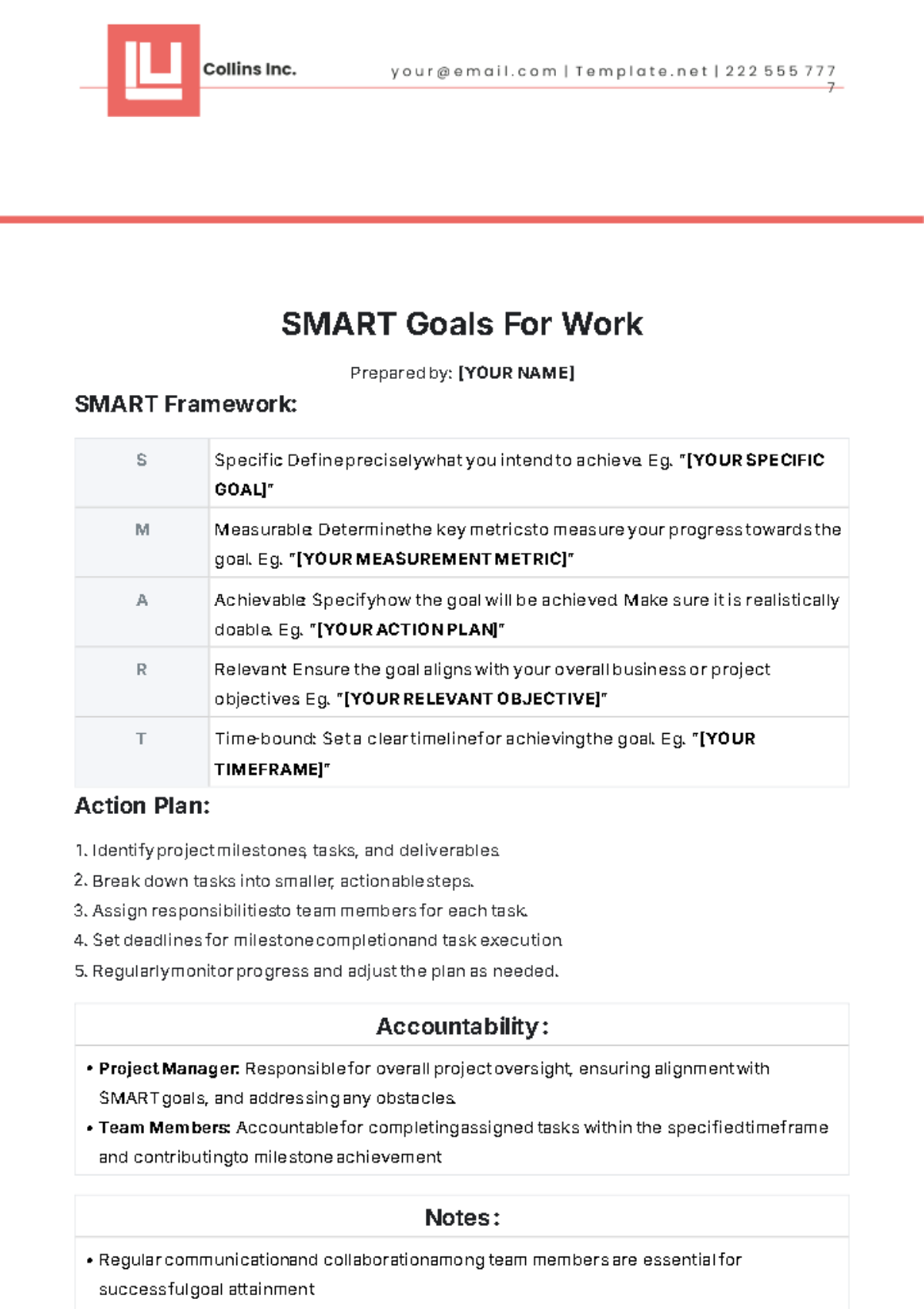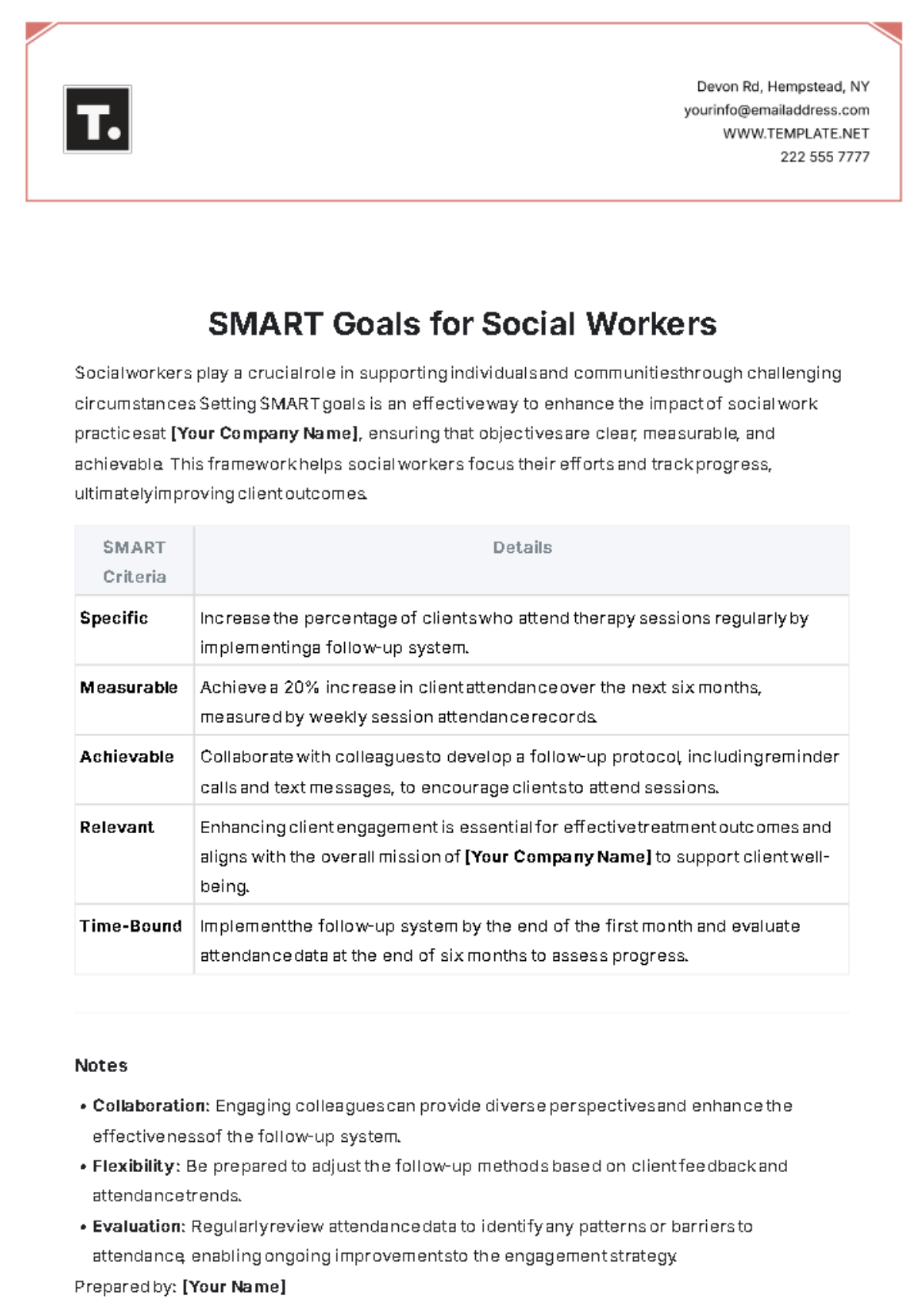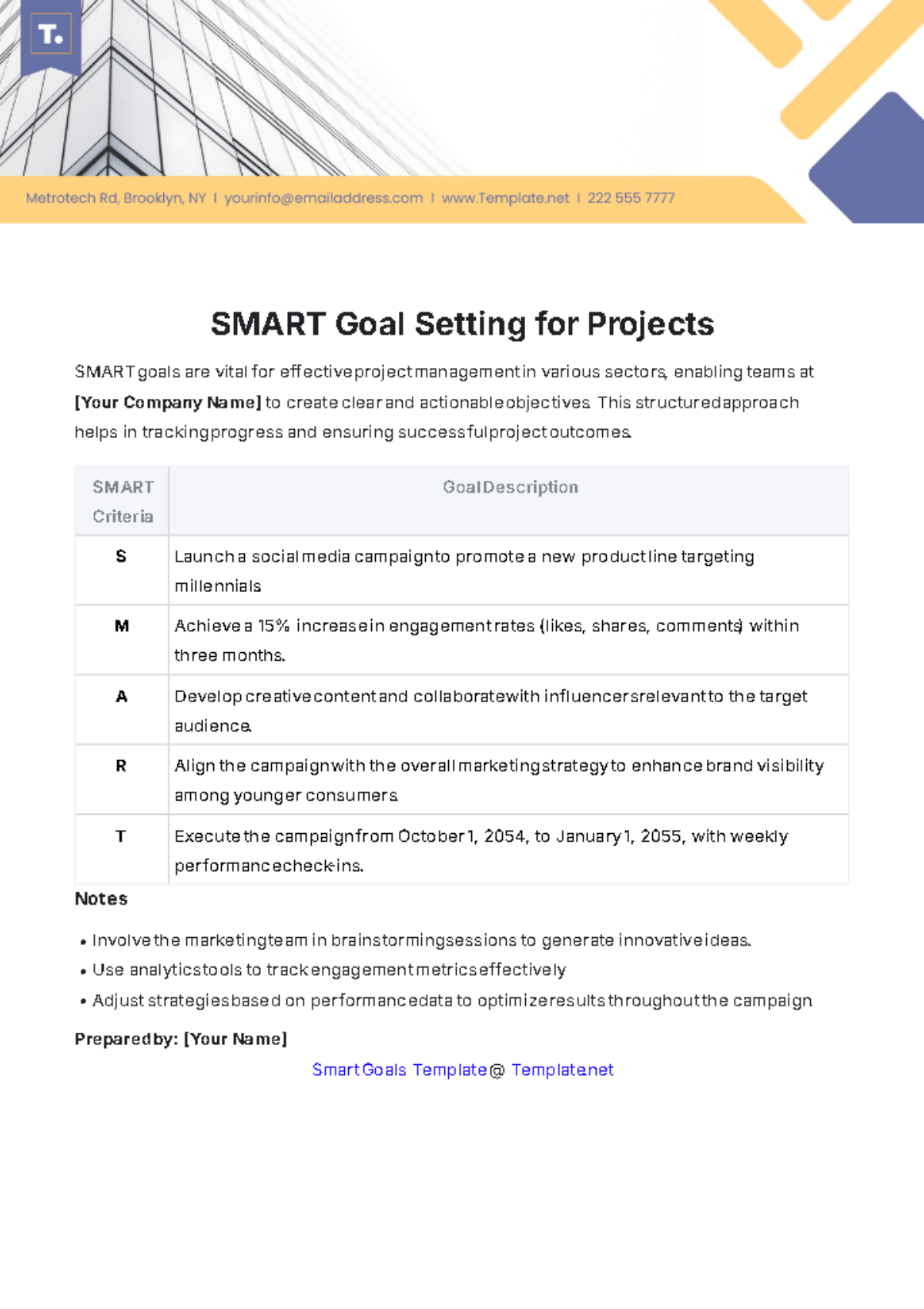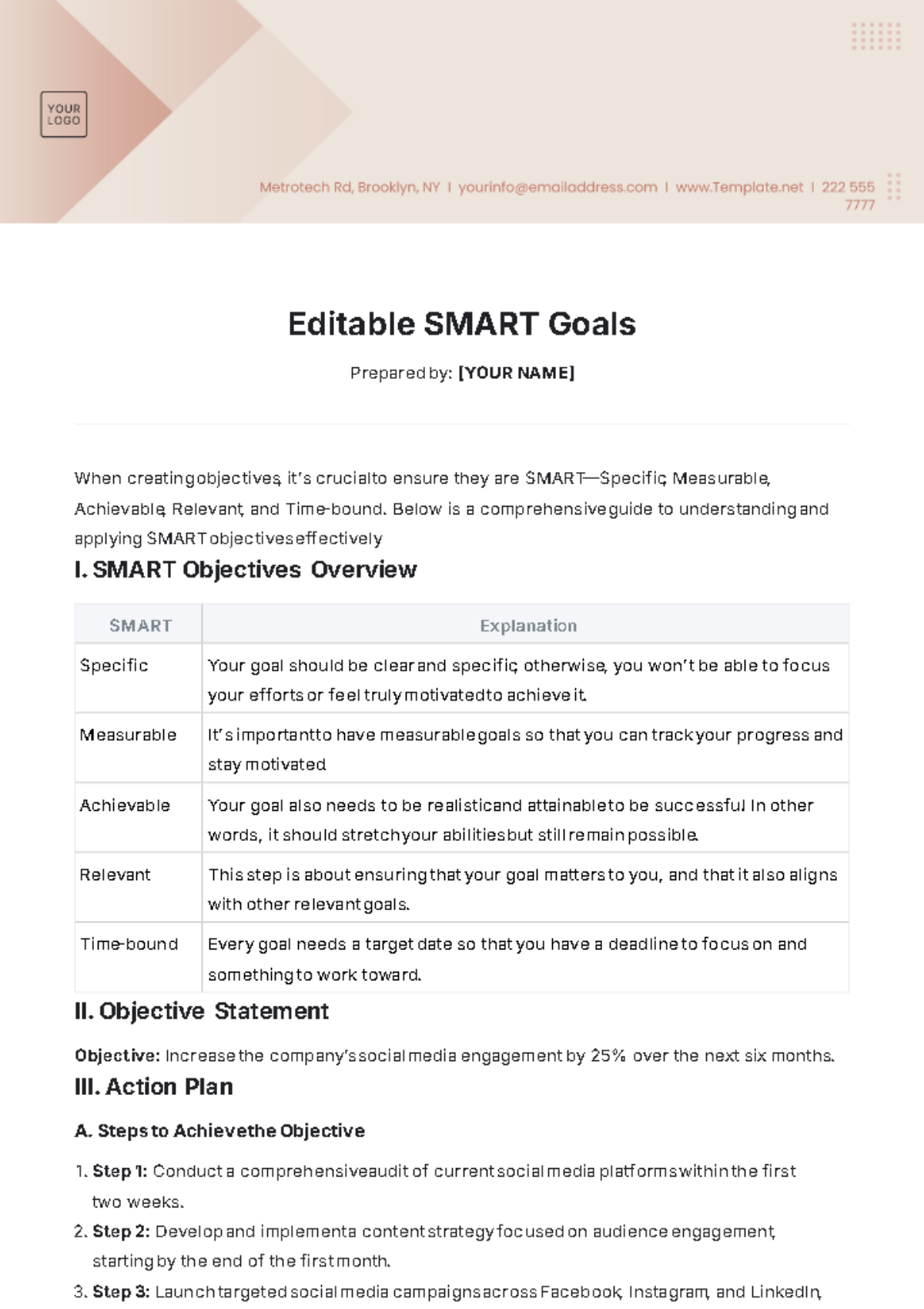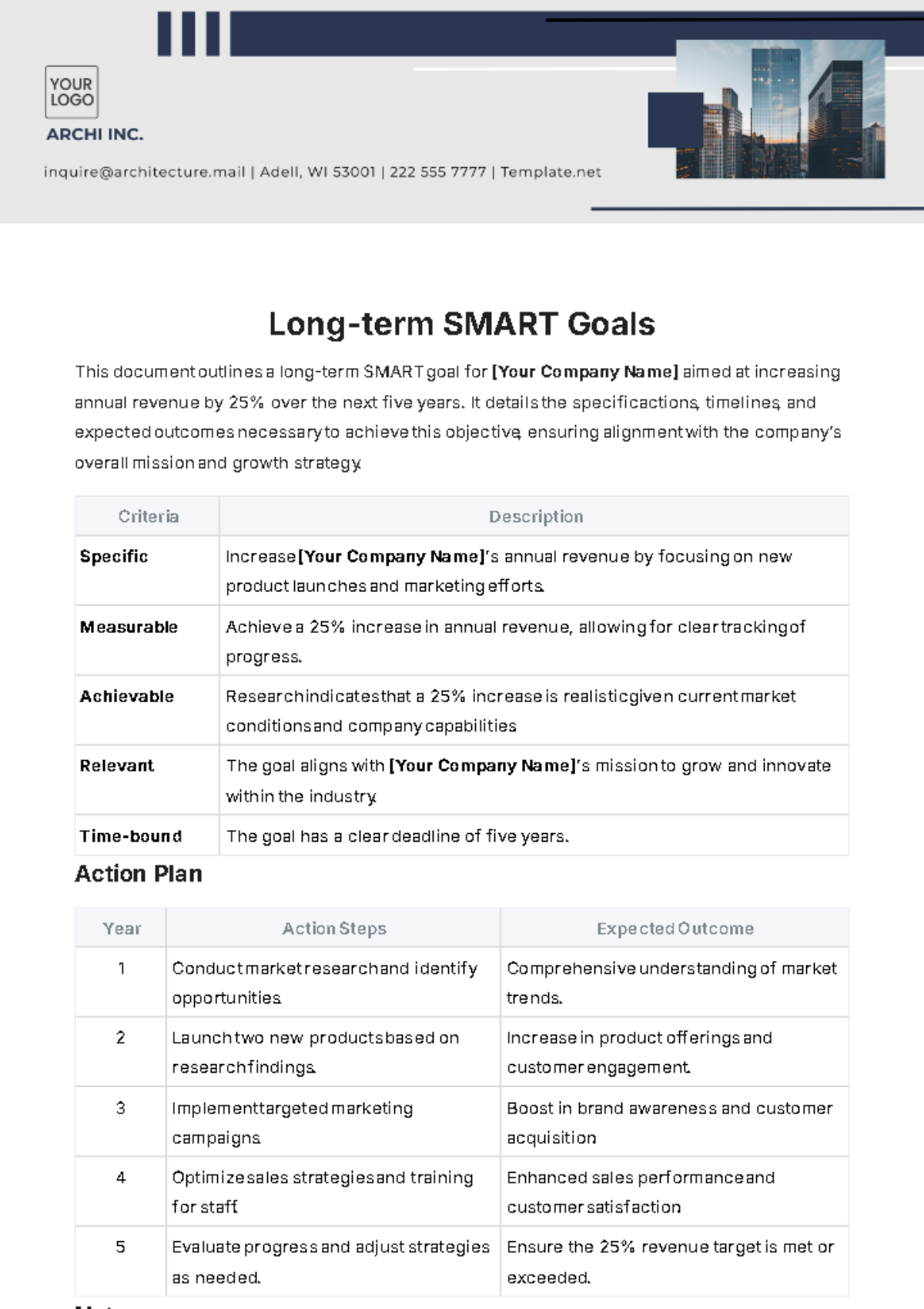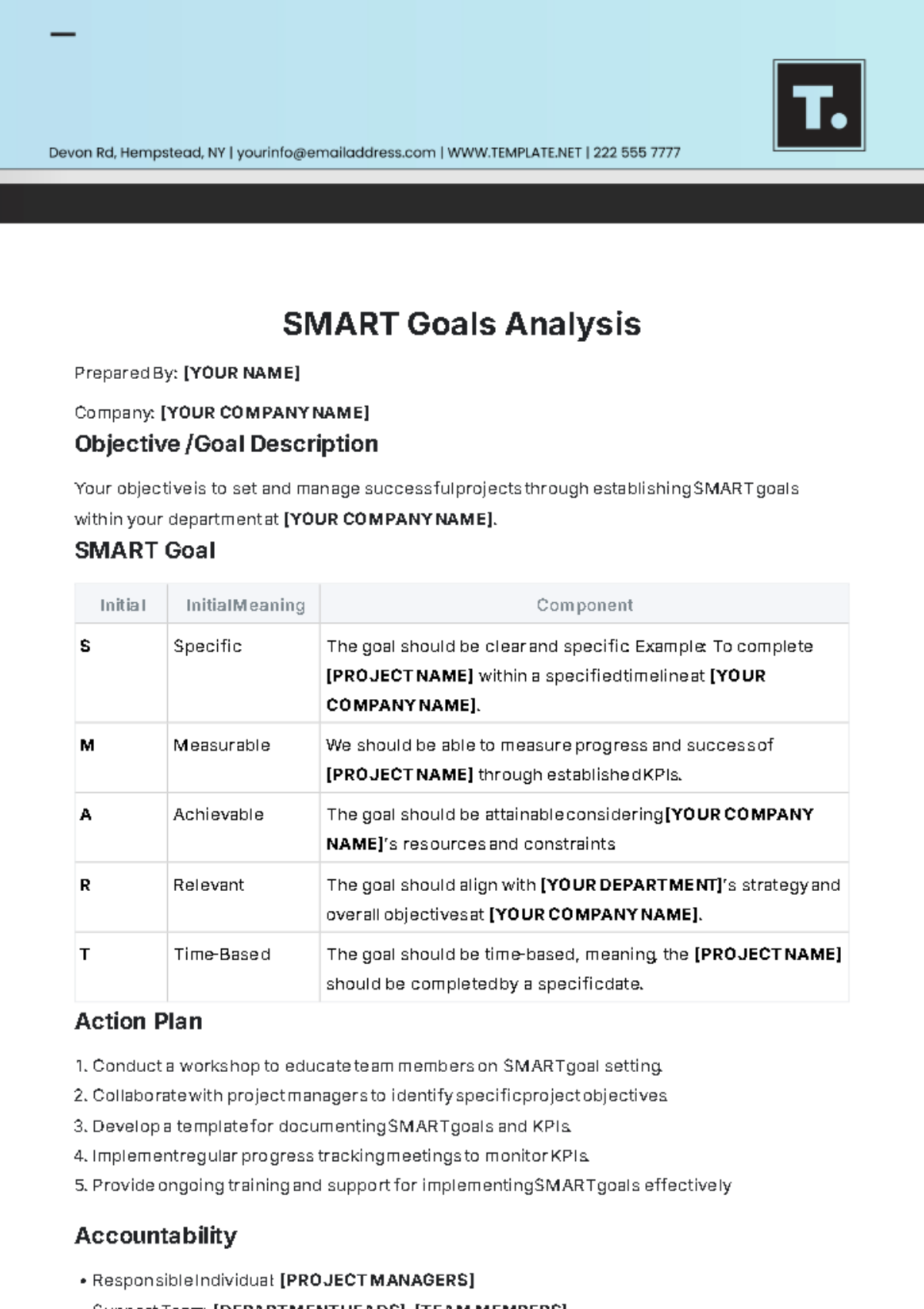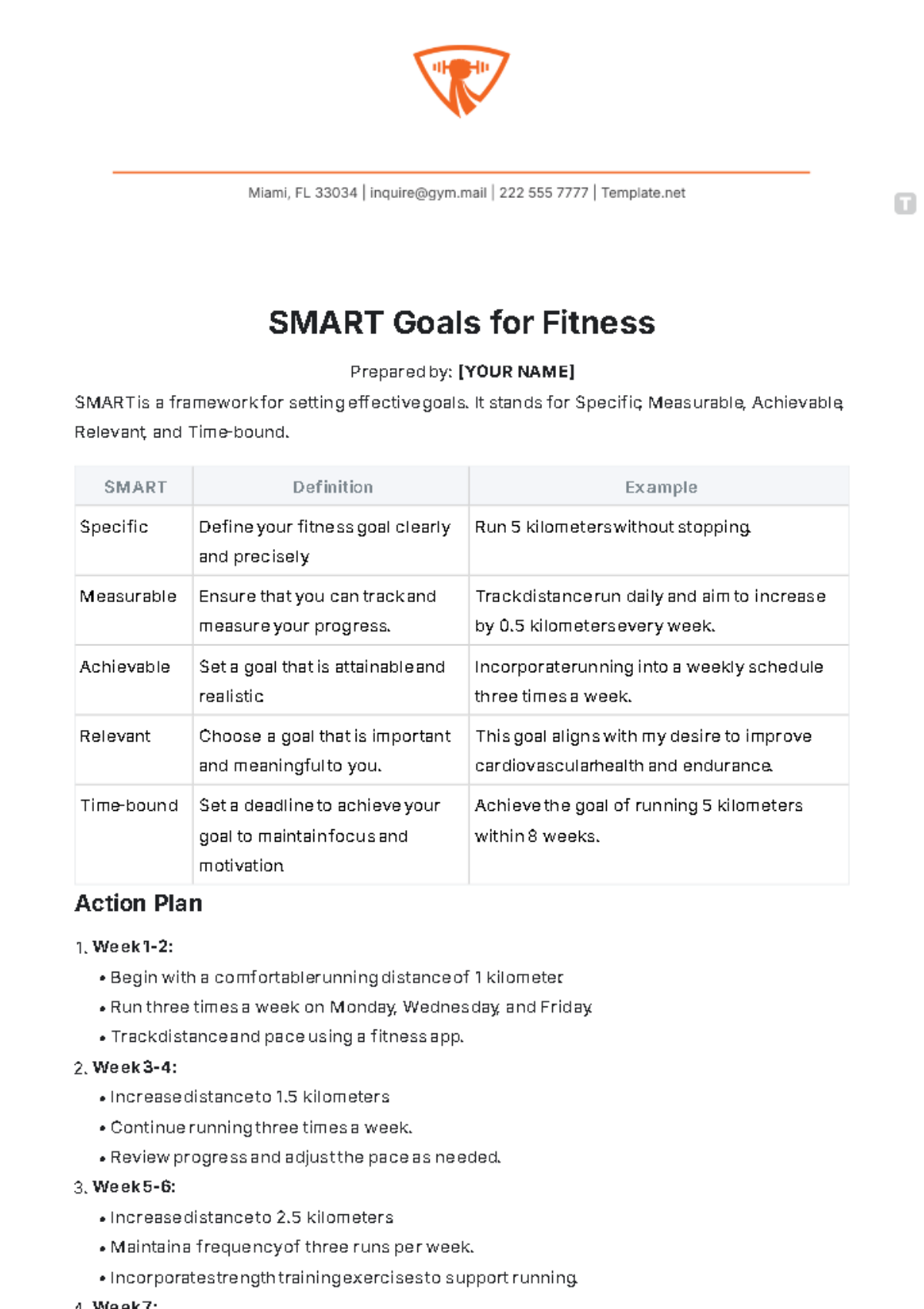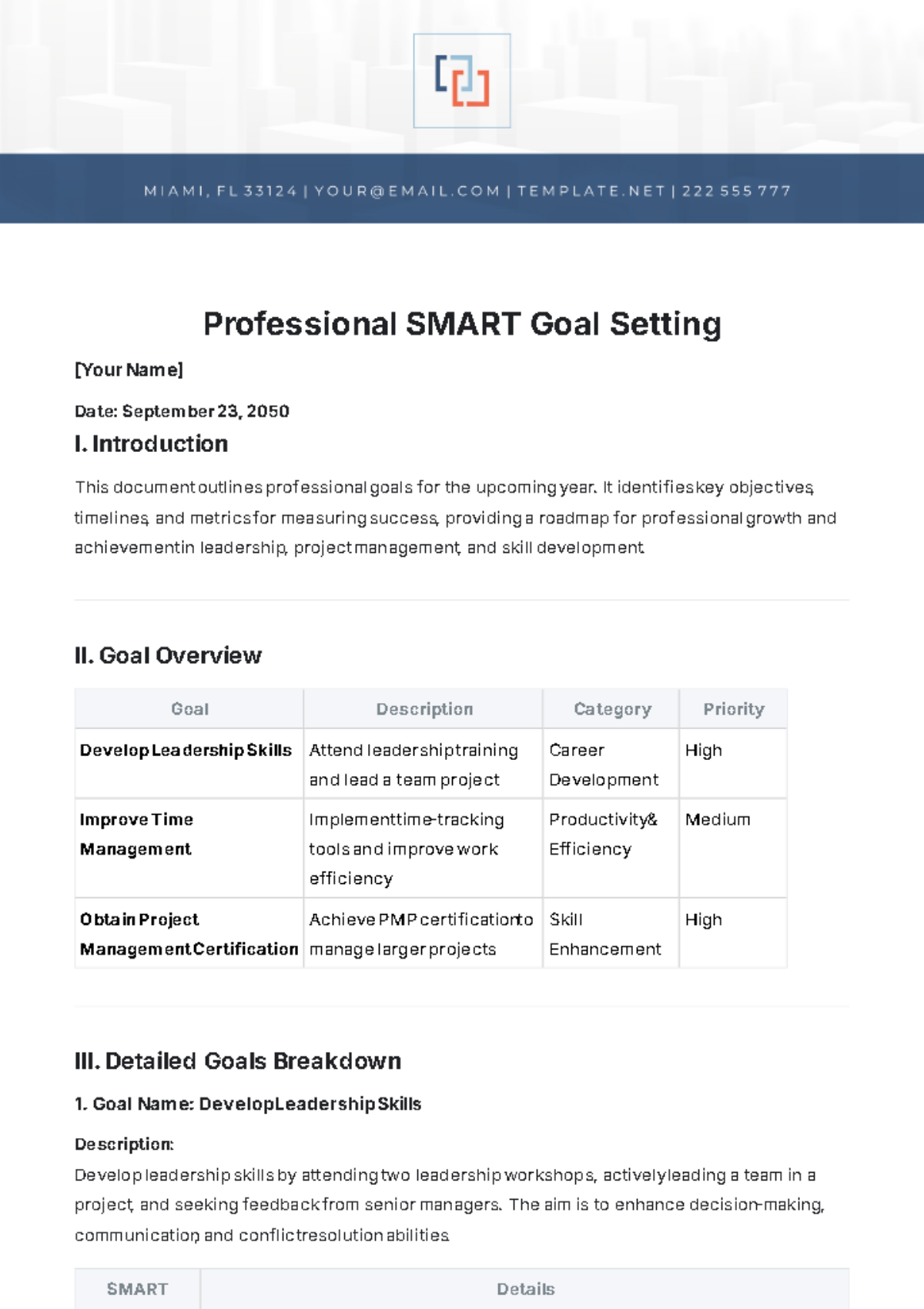Simple SMART Goals
Prepared by: [YOUR NAME]
SMART goals are essential for setting clear, actionable objectives that drive measurable progress. By adhering to the Specific, Measurable, Achievable, Relevant, and Time-bound framework, individuals and teams can effectively plan, execute, and achieve their goals.
SMART Criteria
SMART | Definition | Example |
|---|---|---|
Specific | Clearly define the objective, answering questions like who, what, where, when, and why. | "Increase website traffic by 20% over the next 6 months through targeted social media campaigns." |
Measurable | Quantify the objective so you can measure progress and know when it has been achieved. | "Achieve a 20% increase in website traffic, as measured by Google Analytics." |
Achievable | Set a goal that is challenging but attainable, considering available resources and constraints. | "Develop and implement a social media content plan that includes weekly postings on Facebook, Instagram, and Twitter." |
Relevant | Ensure the goal is relevant to your broader business objectives and aligns with other goals. | "Increasing website traffic will help to generate more leads and sales, supporting overall business growth." |
Time-bound | Set a deadline to create a sense of urgency and help motivate you to achieve the goal. | "Achieve a 20% increase in website traffic within the next 6 months." |
Action Plan
Develop a detailed action plan outlining the specific steps needed to achieve the goal. This includes assigning tasks, setting milestones, and allocating resources.
Create a Social Media Content Calendar: Develop a schedule for content creation and posting.
Design Targeted Ads: Use analytics to determine the best audience and create targeted ads.
Monitor and Adjust: Regularly review performance metrics and adjust strategies as needed.
Accountability
Assign responsibilities and set up a system for tracking progress. This includes designating team members who will be responsible for various aspects of the plan and establishing check-ins to ensure the goal is on track.
Jack Jones: Responsible for content creation and scheduling.
Ella King: Oversee ad design and placement.
Weekly Check-ins: Review progress and make adjustments to the plan.
Notes
Record any observations or insights gained during the process. This section helps in reflecting on what worked, what didn’t, and any adjustments needed for future goals.
Initial Insights: Increased engagement on Instagram posts compared to other platforms.
Challenges: Difficulty in targeting the right audience on Facebook.
Adjustments: Consider using more precise targeting options and A/B testing for ads.
